Beelink has launched a new range of mini PCs called the SEi Series. Similar in size and appearance to an Intel ‘NUC’ they are available in various configurations. Beelink sent a Core i3-10110U SEi model for review which is the version that has now replaced their i3-1005G1 model which they had to discontinue due to the lack of processor availability. There is also an i5-8259U model in the series.
Beelink SEi Hardware Overview
The SEi physically consists of a 124 x 113 x 41mm (4.88 x 4.48 x 1.61 inches) rectangular plastic case. It is an actively cooled mini PC and uses Intel’s 14 nm++ Core i3-10110U Comet Lake processor which is a dual-core 4-thread 2.10 GHz processor boosting to 4.10 GHz with Intel’s UHD Graphics for 10th Gen Intel Processors.
The front panel has a power button, a headphone jack, a Type-C USB 3.0 port, and two USB 3.0 ports. The rear panel includes the power jack, two HDMI ports, two more USB 3.0 ports, and a gigabit Ethernet port. The left side panel includes a micro-SD card slot.
The review model included a 256GB M.2 2280 NVMe SSD drive and 8GB DDR4 2666MHz memory:
Additionally there is soldered-on WiFi 6 (or 802.11ax):
as well as the ability to add an additional 2.5” SATA drive.
The marketing specifications include:
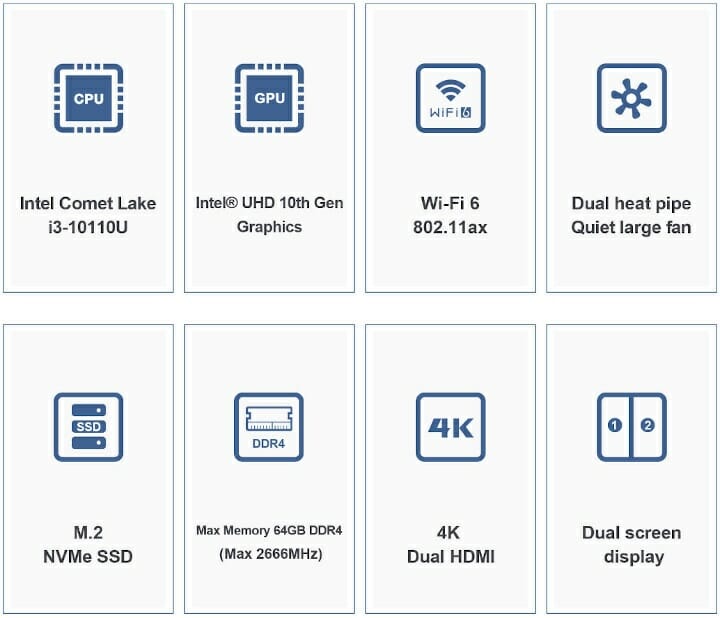
Box contents
In the box, you get a power adapter and cord, two different length HDMI cables, a motherboard SATA connection kit, and a mounting bracket together with screws for attaching the device to behind a monitor. Also included are a user manual and a hard disk installation guide:
Review Methodology
When reviewing mini PCs I typically look at their performance under both Windows and Linux (Ubuntu) and compare them against some of the more recently released mini PCs. Starting in 2021 I am now reviewing using Windows 10 version 20H2 and Ubuntu 20.04.1 LTS and test with a selection of commonly used Windows benchmarks and/or equivalents for Linux together with Thomas Kaiser’s ‘sbc-bench’ which is a small set of different CPU performance tests focusing on server performance when run on Ubuntu. I also use ‘Phoronix Test Suite’ and benchmark with the same set of tests on both Windows and Ubuntu for comparison purposes. On Ubuntu, I also compile the v5.4 Linux kernel using the default config as a test of performance using a real-world scenario. Compared to previous reviews there are some further changes for 2021: 3DMark no longer supports Sky Diver so I’ve removed it from the benchmarks and I’ve also removed Novabench but added Passmark PerformanceTest Linux (which is currently in beta). I’m now using CrystalDiskMark 8.0.1 which has updated the default settings from RND 4KiB Q32T16 to RND 4KiB Q32T1.
Prior to benchmarking, I perform all necessary installations and updates to run the latest versions of both OSes. I also capture some basic details of the device for each OS.
Installation Issues
Initially, I upgraded Windows to 20H2 and ran my benchmarking tools. However, when reviewing all the results I found that some were lower than expected especially for Windows CPU-based tests. For example, the CPU Mark for Passmark in Windows was 3738.6 whereas it was 4342.16 in Ubuntu: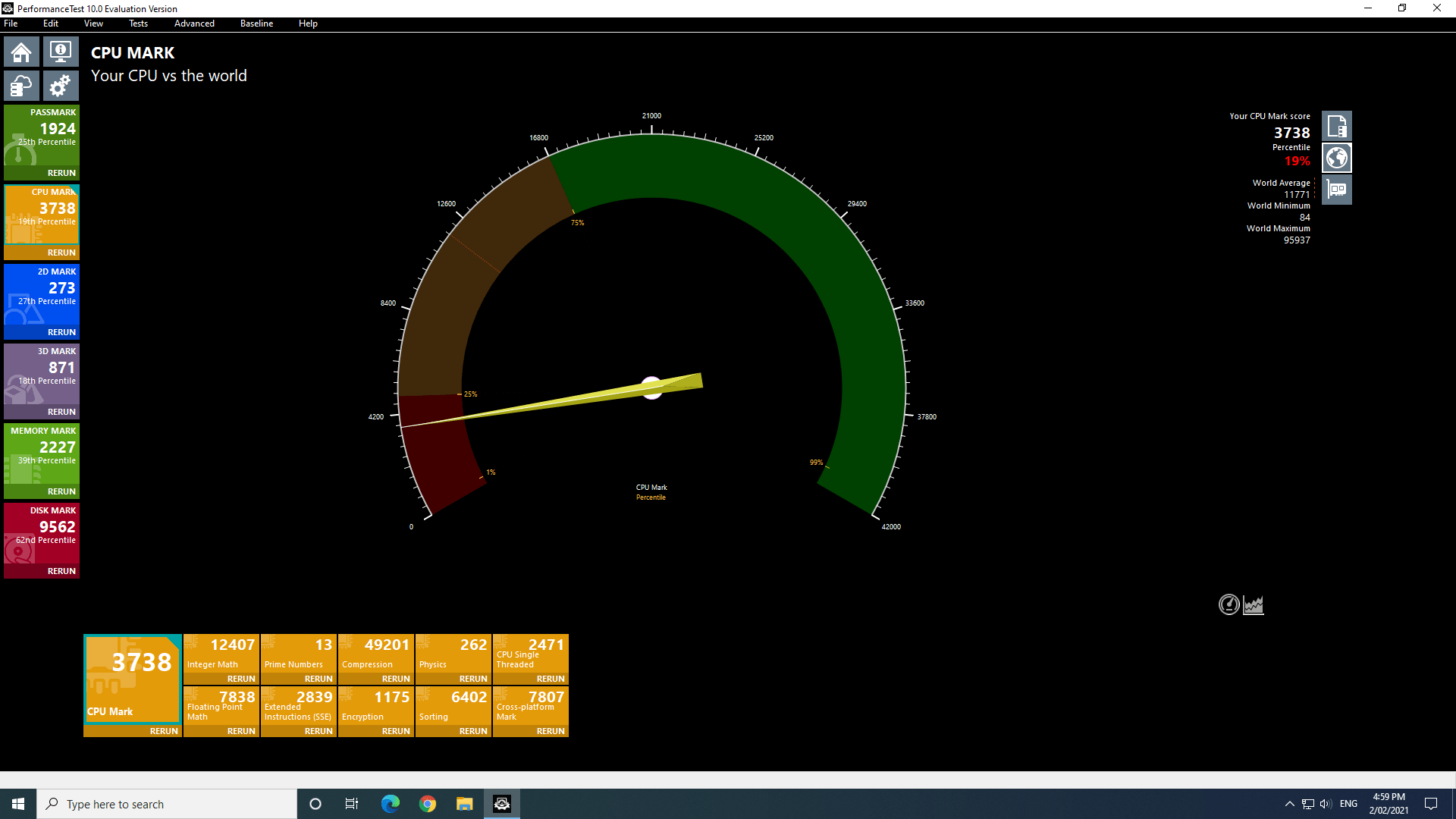
Subsequent investigation showed that this was caused by ‘Power Limit’ throttling as indicated by HWiNFO64: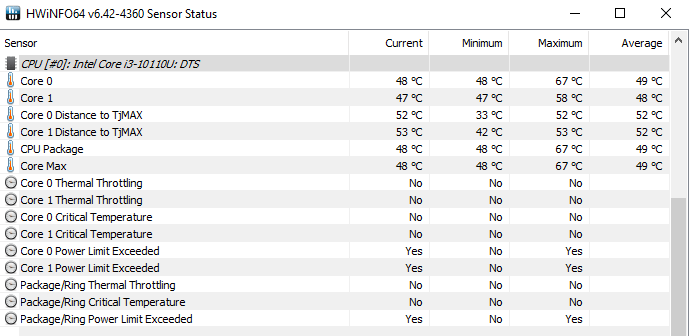
and apparently caused by ‘CPU Power Limit’ being set too low:
The monitoring graph from 3DMark Fire Strike visually shows the CPU throttling:
Having already performed the Ubuntu benchmarking at this point I thought I’d first see the effect of changing the ‘Power Limit’ settings in Windows using Throttlestop. Surprisingly Throttlestop showed different values to those originally reported by HWiNFO64:
and they were also now confirmed when rerunning HWiNFO64:
So I checked the settings in Ubuntu with ‘rapl-info’ which also showed these higher values:
Rerunning the Ubuntu CPU-based tests gave essentially the same results as before as they were within the margin of test variance so it meant the Ubuntu benchmarks were unaffected and that I just had to rerun the Windows benchmarks.
Rerunning Windows CPU based tests now showed the expected performance. For example, CPU Mark for Passmark in Windows was now 4256.7:
and the monitoring graph from 3DMark Fire Strike showed minimal CPU throttling:

Why the values for ‘Power Limit’ changed has not been identified. Now on booting most of the time the ‘Power Limit’ shows as 25W however occasionally a reboot can result in the lower value of 15W regardless of OS:
It is not clear why the 25W value is being set as although it is documented by Intel as the ‘Configurable TDP-up’ for the CPU, Windows shows the ‘Current Configurable TDP Level’ as set to ‘Nominal’ which is defined in the BIOS as:
and the BIOS also shows the current ‘Power Limit’ at 15W:
Obviously, the value for ‘Power Limit’ affects the performance and it is not ideal having to check and reboot if affected by the randomness of this occurrence.
Ubuntu was installed using the latest ISO from Canonical and after booting the ‘dmesg’ showed a couple of PCIe Bus errors:
At one point during testing the Ethernet connection stopped working:
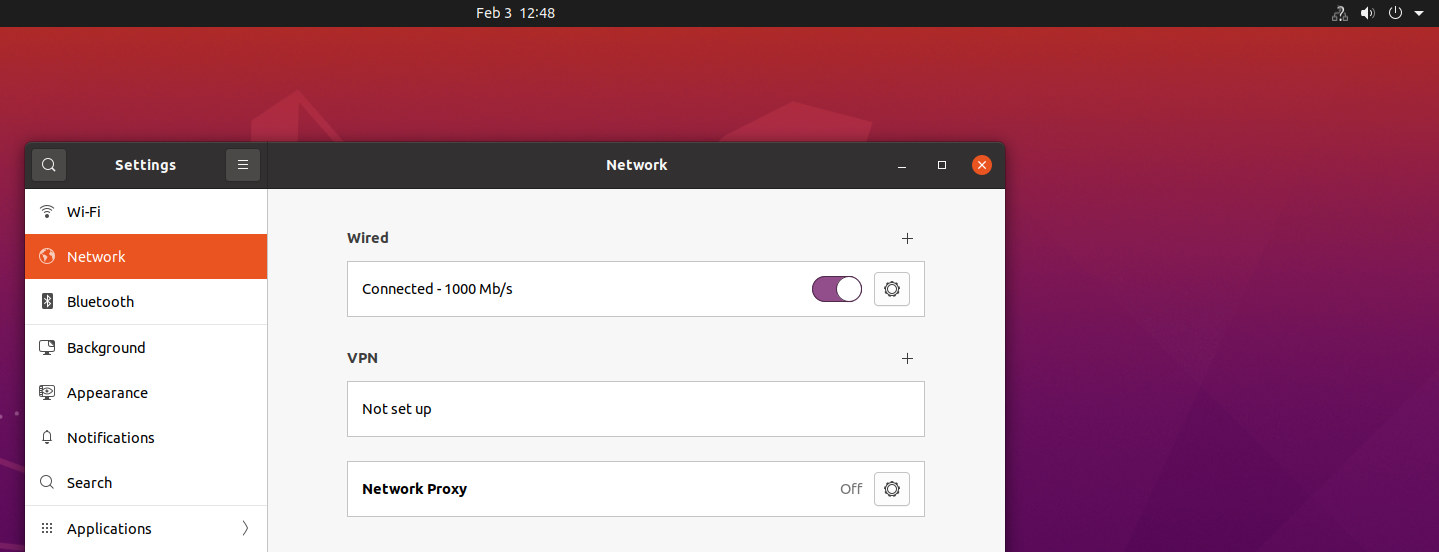
However, after a reboot, no further Ethernet issues were encountered. When the ‘dmesg’ was checked after testing network performance the log was full of the same PCIe Bus errors which appear to be linked to the Ethernet controller: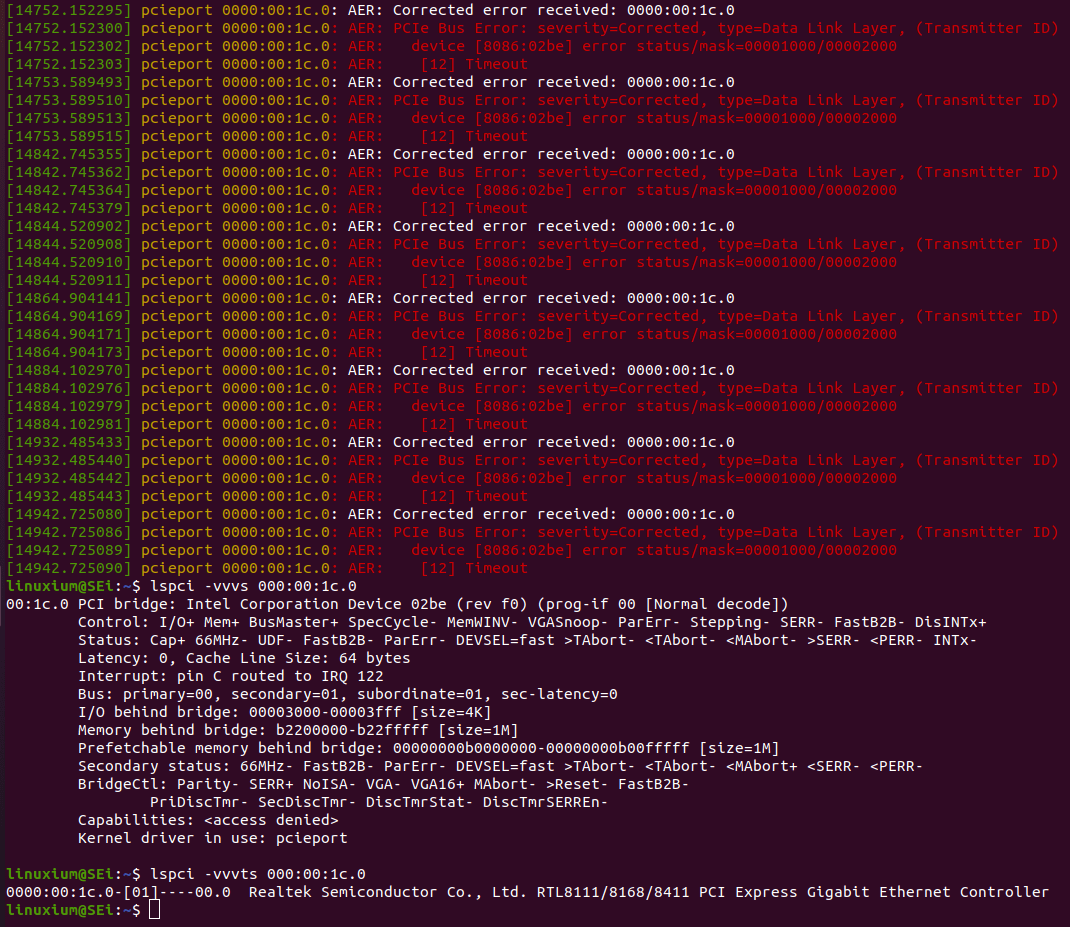
This spamming of bus errors is well documented on the internet although a specific solution for this particular instance has not been found.
Beelink SEI – Windows 10 Performance
Initially, the SEi comes installed with a licensed copy of Windows 10 Pro version 2004 build 19041.685. After upgrading to version 20H2 build 19042.746 a quick look at the hardware information shows it is aligned to the specification:
A brief check showed working audio, micro-SD, Wi-Fi, Bluetooth, and Ethernet.
I then set the power mode to ‘High performance’ and ran my (2021) standard set of benchmarking tools to look at performance under Windows. However, due to the ‘Power Limit’ issue, I had to rerun the benchmarking tools having received an inevitable Windows update which took the build to 19042.789: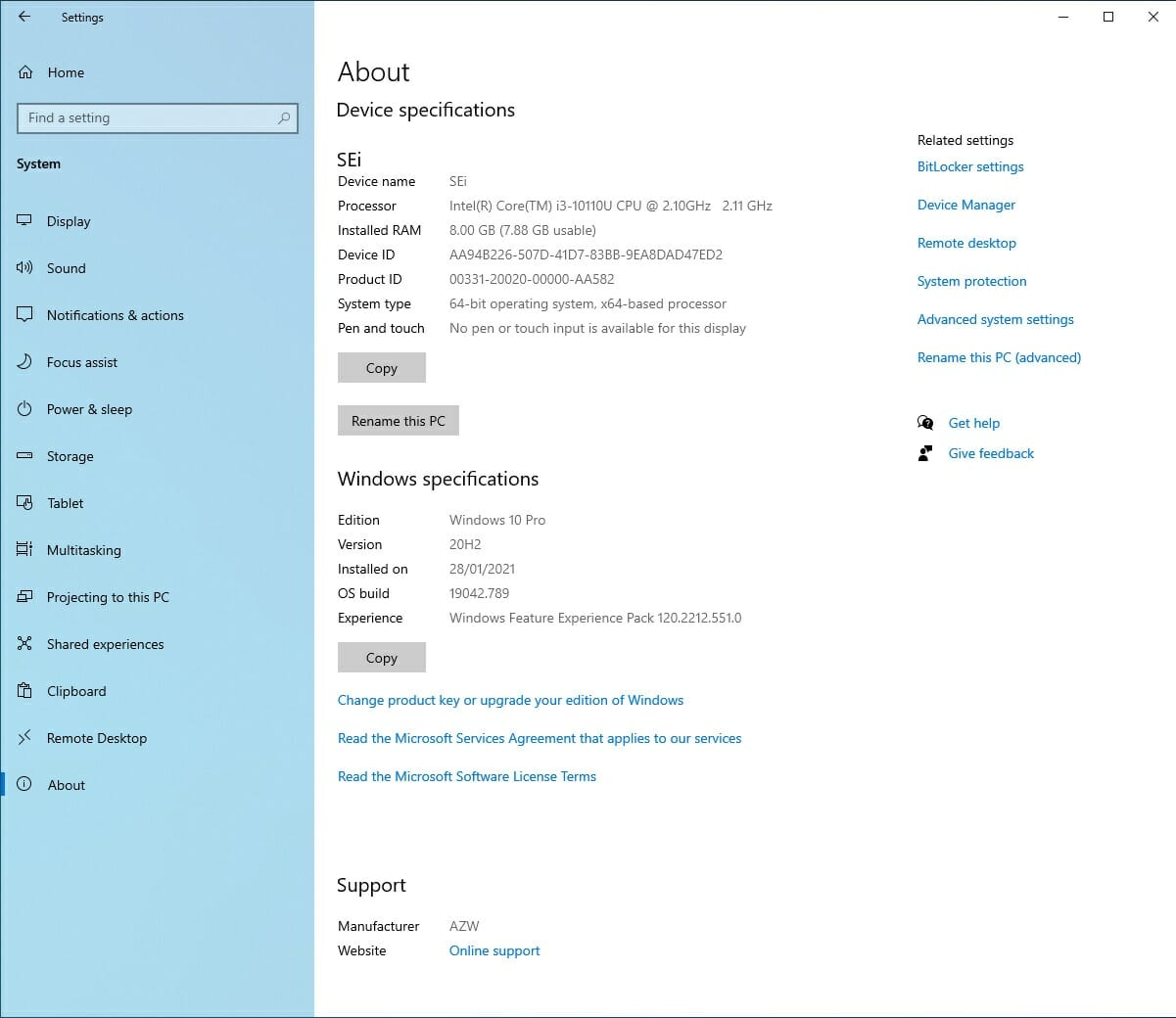
and the new ‘Power Limit’ values were: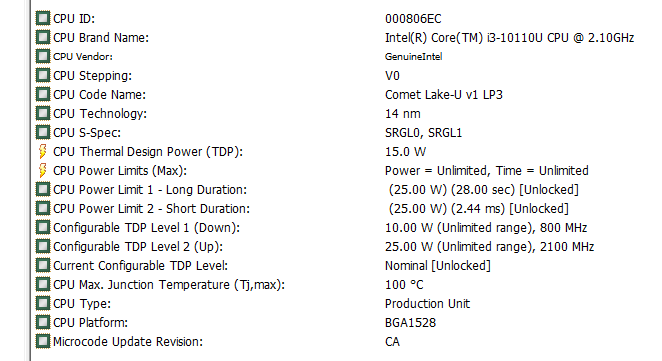
The rerun Windows benchmarking tools results were:
For my specific set of Phoronix Test Suite tests the rerun results were:
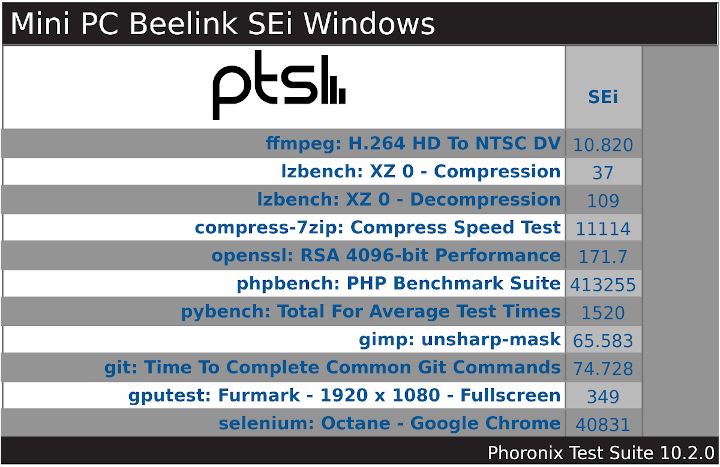
All these results can then be compared with other recent mini PCs:
The Core i3-1011U integrated graphics is not particularly powerful, and Beelink SEi not really suitable for ‘AAA’ gaming.
Ubuntu Performance on Beelink SEi Comet Lake mini PC
After shrinking the Windows partition in half and creating a new partition I installed Ubuntu using an Ubuntu 20.04.1 ISO as dual boot. After installation and updates, a brief check showed working micro-SD, Wi-Fi, Bluetooth, and audio including HDMI and headphones.
The key hardware information under Ubuntu 20.04.1 is as follows:
|
1 2 3 4 5 6 7 8 9 10 11 12 13 14 15 16 17 18 19 20 21 22 23 24 25 26 27 28 29 30 31 32 33 34 35 36 37 38 39 40 41 42 43 44 45 46 47 48 49 50 51 52 53 54 55 56 57 58 59 60 61 62 63 64 65 66 67 68 69 70 71 72 73 74 75 76 77 78 79 80 81 82 83 84 85 86 87 88 89 90 91 92 93 94 95 96 97 98 99 100 101 102 103 104 105 106 107 108 109 110 111 112 113 114 115 116 117 118 119 120 121 122 123 124 125 126 127 128 129 130 131 132 133 134 135 136 137 138 139 140 141 142 143 144 145 146 147 148 149 150 151 152 153 154 155 156 157 158 159 160 161 162 163 164 165 166 167 168 169 170 171 172 173 174 175 176 177 178 179 180 181 182 183 184 185 186 187 188 189 190 191 192 193 194 195 196 197 198 199 200 201 202 203 204 205 206 207 208 209 210 211 212 213 214 215 216 217 218 219 220 221 222 223 224 225 226 227 228 229 230 231 232 233 234 235 |
linuxium@SEi:~$ lsb_release -a Distributor ID: Ubuntu Description: Ubuntu 20.04.2 LTS Release: 20.04 Codename: focal linuxium@SEi:~$ linuxium@SEi:~$ uname -a Linux SEi 5.8.0-41-generic #46~20.04.1-Ubuntu SMP Mon Jan 18 17:52:23 UTC 2021 x86_64 x86_64 x86_64 GNU/Linux linuxium@SEi:~$ linuxium@SEi:~$ inxi -Fc0 System: Host: SEi Kernel: 5.8.0-41-generic x86_64 bits: 64 Desktop: Gnome 3.36.4 Distro: Ubuntu 20.04.2 LTS (Focal Fossa) Machine: Type: Mini-pc Mobo: AZW model: SEi serial: XXXXXXXXXXXXXXXXX UEFI: American Megatrends v: CB1D_MV105 date: 12/23/2020 CPU: Topology: Dual Core model: Intel Core i3-10110U bits: 64 type: MT MCP L2 cache: 4096 KiB Speed: 4101 MHz min/max: 400/4100 MHz Core speeds (MHz): 1: 3921 2: 3965 3: 3858 4: 3840 Graphics: Device-1: Intel UHD Graphics driver: i915 v: kernel Display: server: X.Org 1.20.9 driver: i915 resolution: 1920x1080~60Hz OpenGL: renderer: Mesa Intel UHD Graphics (CML GT2) v: 4.6 Mesa 20.2.6 Audio: Device-1: Intel driver: sof-audio-pci Sound Server: ALSA v: k5.8.0-41-generic Network: Device-1: Intel Wireless-AC 9462 driver: iwlwifi IF: wlo1 state: down mac: xx:xx:xx:xx:xx:xx Device-2: Realtek RTL8111/8168/8411 PCI Express Gigabit Ethernet driver: r8169 IF: enp1s0 state: up speed: 1000 Mbps duplex: full mac: xx:xx:xx:xx:xx:xx Drives: Local Storage: total: 238.47 GiB used: 16.94 GiB (7.1%) ID-1: /dev/nvme0n1 model: SSD 256GB size: 238.47 GiB Partition: ID-1: / size: 116.30 GiB used: 16.91 GiB (14.5%) fs: ext4 dev: /dev/nvme0n1p5 Sensors: System Temperatures: cpu: 43.0 C mobo: N/A Fan Speeds (RPM): N/A Info: Processes: 221 Uptime: 29m Memory: 7.65 GiB used: 1.13 GiB (14.8%) Shell: new-review-test inxi: 3.0.38 linuxium@SEi:~$ linuxium@SEi:~$ df -h Filesystem Size Used Avail Use% Mounted on udev 3.8G 0 3.8G 0% /dev tmpfs 784M 1.8M 783M 1% /run /dev/nvme0n1p5 117G 17G 94G 16% / tmpfs 3.9G 0 3.9G 0% /dev/shm tmpfs 5.0M 4.0K 5.0M 1% /run/lock tmpfs 3.9G 0 3.9G 0% /sys/fs/cgroup /dev/loop1 56M 56M 0 100% /snap/core18/1944 /dev/loop2 63M 63M 0 100% /snap/gtk-common-themes/1506 /dev/loop3 256M 256M 0 100% /snap/gnome-3-34-1804/36 /dev/loop0 55M 55M 0 100% /snap/core18/1880 /dev/loop5 52M 52M 0 100% /snap/snap-store/518 /dev/loop4 50M 50M 0 100% /snap/snap-store/467 /dev/loop6 30M 30M 0 100% /snap/snapd/8542 /dev/loop7 65M 65M 0 100% /snap/gtk-common-themes/1514 /dev/loop8 219M 219M 0 100% /snap/gnome-3-34-1804/66 /dev/loop9 32M 32M 0 100% /snap/snapd/10707 /dev/nvme0n1p1 96M 33M 64M 35% /boot/efi tmpfs 784M 40K 784M 1% /run/user/1000 linuxium@SEi:~$ linuxium@SEi:~$ lsblk -a NAME MAJ:MIN RM SIZE RO TYPE MOUNTPOINT loop0 7:0 0 55M 1 loop /snap/core18/1880 loop1 7:1 0 55.4M 1 loop /snap/core18/1944 loop2 7:2 0 62.1M 1 loop /snap/gtk-common-themes/1506 loop3 7:3 0 255.6M 1 loop /snap/gnome-3-34-1804/36 loop4 7:4 0 49.8M 1 loop /snap/snap-store/467 loop5 7:5 0 51M 1 loop /snap/snap-store/518 loop6 7:6 0 29.9M 1 loop /snap/snapd/8542 loop7 7:7 0 64.8M 1 loop /snap/gtk-common-themes/1514 loop8 7:8 0 219M 1 loop /snap/gnome-3-34-1804/66 loop9 7:9 0 31.1M 1 loop /snap/snapd/10707 loop10 7:10 0 0 loop nvme0n1 259:0 0 238.5G 0 disk ├─nvme0n1p1 259:1 0 100M 0 part /boot/efi ├─nvme0n1p2 259:2 0 128M 0 part ├─nvme0n1p3 259:3 0 118.7G 0 part ├─nvme0n1p4 259:4 0 954M 0 part └─nvme0n1p5 259:5 0 118.7G 0 part / linuxium@SEi:~$ linuxium@SEi:~$ sudo lshw -C cpu *-cpu description: CPU product: Intel(R) Core(TM) i3-10110U CPU @ 2.10GHz vendor: Intel Corp. physical id: 49 bus info: cpu@0 version: Intel(R) Core(TM) i3-10110U CPU @ 2.10GHz serial: To Be Filled By O.E.M. slot: U3E1 size: 3772MHz capacity: 4100MHz width: 64 bits clock: 100MHz capabilities: lm fpu fpu_exception wp vme de pse tsc msr pae mce cx8 apic sep mtrr pge mca cmov pat pse36 clflush dts acpi mmx fxsr sse sse2 ss ht tm pbe syscall nx pdpe1gb rdtscp x86-64 constant_tsc art arch_perfmon pebs bts rep_good nopl xtopology nonstop_tsc cpuid aperfmperf pni pclmulqdq dtes64 monitor ds_cpl vmx est tm2 ssse3 sdbg fma cx16 xtpr pdcm pcid sse4_1 sse4_2 x2apic movbe popcnt tsc_deadline_timer aes xsave avx f16c rdrand lahf_lm abm 3dnowprefetch cpuid_fault epb invpcid_single ssbd ibrs ibpb stibp ibrs_enhanced tpr_shadow vnmi flexpriority ept vpid ept_ad fsgsbase tsc_adjust bmi1 avx2 smep bmi2 erms invpcid mpx rdseed adx smap clflushopt intel_pt xsaveopt xsavec xgetbv1 xsaves dtherm ida arat pln pts hwp hwp_notify hwp_act_window hwp_epp md_clear flush_l1d arch_capabilities cpufreq configuration: cores=2 enabledcores=2 threads=4 linuxium@SEi:~$ linuxium@SEi:~$ sudo lshw -C memory *-firmware description: BIOS vendor: American Megatrends Inc. physical id: 0 version: CB1D_MV105 date: 12/23/2020 size: 64KiB capacity: 16MiB capabilities: pci upgrade shadowing cdboot bootselect socketedrom edd int13floppy1200 int13floppy720 int13floppy2880 int5printscreen int14serial int17printer acpi usb biosbootspecification uefi *-memory description: System Memory physical id: 3b slot: System board or motherboard size: 8GiB *-bank:0 description: SODIMM DDR4 Synchronous 2667 MHz (0.4 ns) product: 4ATF1G64HZ-2G6E1 vendor: Samsung physical id: 0 serial: XXXXXXXX slot: ChannelA-DIMM0 size: 8GiB width: 64 bits clock: 2667MHz (0.4ns) *-bank:1 description: Project-Id-Version: lshwReport-Msgid-Bugs-To: FULL NAME <EMAIL@ADDRESS>PO-Revision-Date: 2012-02-02 13:04+0000Last-Translator: Joel Addison <jaddi27@gmail.com>Language-Team: English (Australia) <en_AU@li.org>MIME-Version: 1.0Content-Type: text/plain; charset=UTF-8Content-Transfer-Encoding: 8bitX-Launchpad-Export-Date: 2021-01-21 18:43+0000X-Generator: Launchpad (build 2d1d5e352f0d063d660df2300e31f66bed027fa5)Project-Id-Version: lshwReport-Msgid-Bugs-To: FULL NAME <EMAIL@ADDRESS>PO-Revision-Date: 2012-02-02 13:04+0000Last-Translator: Joel Addison <jaddi27@gmail.com>Language-Team: English (Australia) <en_AU@li.org>MIME-Version: 1.0Content-Type: text/plain; charset=UTF-8Content-Transfer-Encoding: 8bitX-Launchpad-Export-Date: 2021-01-21 18:43+0000X-Generator: Launchpad (build 2d1d5e352f0d063d660df2300e31f66bed027fa5) [empty] physical id: 1 slot: ChannelB-DIMM0 *-cache:0 description: L1 cache physical id: 46 slot: L1 Cache size: 128KiB capacity: 128KiB capabilities: synchronous internal write-back unified configuration: level=1 *-cache:1 description: L2 cache physical id: 47 slot: L2 Cache size: 512KiB capacity: 512KiB capabilities: synchronous internal write-back unified configuration: level=2 *-cache:2 description: L3 cache physical id: 48 slot: L3 Cache size: 4MiB capacity: 4MiB capabilities: synchronous internal write-back unified configuration: level=3 *-memory UNCLAIMED description: RAM memory product: Intel Corporation vendor: Intel Corporation physical id: 14.2 bus info: pci@0000:00:14.2 version: 00 width: 64 bits clock: 33MHz (30.3ns) capabilities: pm cap_list configuration: latency=0 resources: memory:b231a000-b231bfff memory:b2322000-b2322fff linuxium@SEi:~$ linuxium@SEi:~$ free -mh total used free shared buff/cache available Mem: 7.7Gi 744Mi 180Mi 165Mi 6.8Gi 6.5Gi Swap: 2.0Gi 1.0Mi 2.0Gi linuxium@SEi:~$ linuxium@SEi:~$ sudo lshw -C network *-network description: Wireless interface product: Wireless-AC 9462 vendor: Intel Corporation physical id: 14.3 bus info: pci@0000:00:14.3 logical name: wlo1 version: 00 serial: xx:xx:xx:xx:xx:xx width: 64 bits clock: 33MHz capabilities: pm msi pciexpress msix bus_master cap_list ethernet physical wireless configuration: broadcast=yes driver=iwlwifi driverversion=5.8.0-41-generic firmware=55.d9698065.0 QuZ-a0-hr-b0-55.u latency=0 link=no multicast=yes wireless=IEEE 802.11 resources: irq:16 memory:b2314000-b2317fff *-network description: Ethernet interface product: RTL8111/8168/8411 PCI Express Gigabit Ethernet Controller vendor: Realtek Semiconductor Co., Ltd. physical id: 0 bus info: pci@0000:01:00.0 logical name: enp1s0 version: 0c serial: xx:xx:xx:xx:xx:xx size: 1Gbit/s capacity: 1Gbit/s width: 64 bits clock: 33MHz capabilities: pm msi pciexpress msix vpd bus_master cap_list ethernet physical tp mii 10bt 10bt-fd 100bt 100bt-fd 1000bt-fd autonegotiation configuration: autonegotiation=on broadcast=yes driver=r8169 driverversion=5.8.0-41-generic duplex=full firmware=rtl8168g-2_0.0.1 02/06/13 ip=xxx.xxx.xxx.xxx latency=0 link=yes multicast=yes port=MII speed=1Gbit/s resources: irq:18 ioport:3000(size=256) memory:b2200000-b2200fff memory:b0000000-b0003fff linuxium@SEi:~$ linuxium@SEi:~$ sudo lshw -C display *-display description: VGA compatible controller product: UHD Graphics vendor: Intel Corporation physical id: 2 bus info: pci@0000:00:02.0 version: 02 width: 64 bits clock: 33MHz capabilities: pciexpress msi pm vga_controller bus_master cap_list rom configuration: driver=i915 latency=0 resources: irq:139 memory:b1000000-b1ffffff memory:a0000000-afffffff ioport:4000(size=64) memory:c0000-dffff linuxium@SEi:~$ linuxium@SEi:~$ lsusb Bus 002 Device 001: ID 1d6b:0003 Linux Foundation 3.0 root hub Bus 001 Device 004: ID 093a:2510 Pixart Imaging, Inc. Optical Mouse Bus 001 Device 003: ID 046d:c31c Logitech, Inc. Keyboard K120 Bus 001 Device 002: ID 0bda:0129 Realtek Semiconductor Corp. RTS5129 Card Reader Controller Bus 001 Device 005: ID 8087:0026 Intel Corp. Bus 001 Device 001: ID 1d6b:0002 Linux Foundation 2.0 root hub linuxium@SEi:~$ linuxium@SEi:~$ lspci -nn 00:00.0 Host bridge [0600]: Intel Corporation Device [8086:9b71] (rev 0c) 00:02.0 VGA compatible controller [0300]: Intel Corporation UHD Graphics [8086:9b41] (rev 02) 00:08.0 System peripheral [0880]: Intel Corporation Xeon E3-1200 v5/v6 / E3-1500 v5 / 6th/7th/8th Gen Core Processor Gaussian Mixture Model [8086:1911] 00:12.0 Signal processing controller [1180]: Intel Corporation Comet Lake Thermal Subsytem [8086:02f9] 00:14.0 USB controller [0c03]: Intel Corporation Device [8086:02ed] 00:14.2 RAM memory [0500]: Intel Corporation Device [8086:02ef] 00:14.3 Network controller [0280]: Intel Corporation Wireless-AC 9462 [8086:02f0] 00:15.0 Serial bus controller [0c80]: Intel Corporation Serial IO I2C Host Controller [8086:02e8] 00:16.0 Communication controller [0780]: Intel Corporation Comet Lake Management Engine Interface [8086:02e0] 00:17.0 SATA controller [0106]: Intel Corporation Comet Lake SATA AHCI Controller [8086:02d3] 00:1a.0 SD Host controller [0805]: Intel Corporation Device [8086:02c4] 00:1c.0 PCI bridge [0604]: Intel Corporation Device [8086:02be] (rev f0) 00:1d.0 PCI bridge [0604]: Intel Corporation Device [8086:02b0] (rev f0) 00:1f.0 ISA bridge [0601]: Intel Corporation Device [8086:0284] 00:1f.3 Audio device [0403]: Intel Corporation Device [8086:02c8] 00:1f.4 SMBus [0c05]: Intel Corporation Device [8086:02a3] 00:1f.5 Serial bus controller [0c80]: Intel Corporation Comet Lake SPI (flash) Controller [8086:02a4] 01:00.0 Ethernet controller [0200]: Realtek Semiconductor Co., Ltd. RTL8111/8168/8411 PCI Express Gigabit Ethernet Controller [10ec:8168] (rev 0c) 02:00.0 Non-Volatile memory controller [0108]: Silicon Motion, Inc. Device [126f:2263] (rev 03) linuxium@SEi:~$ |
I then set the CPU Scaling Governor to ‘performance’ and ran my Linux benchmarks for which the majority of the results are text-based but the graphical ones included:
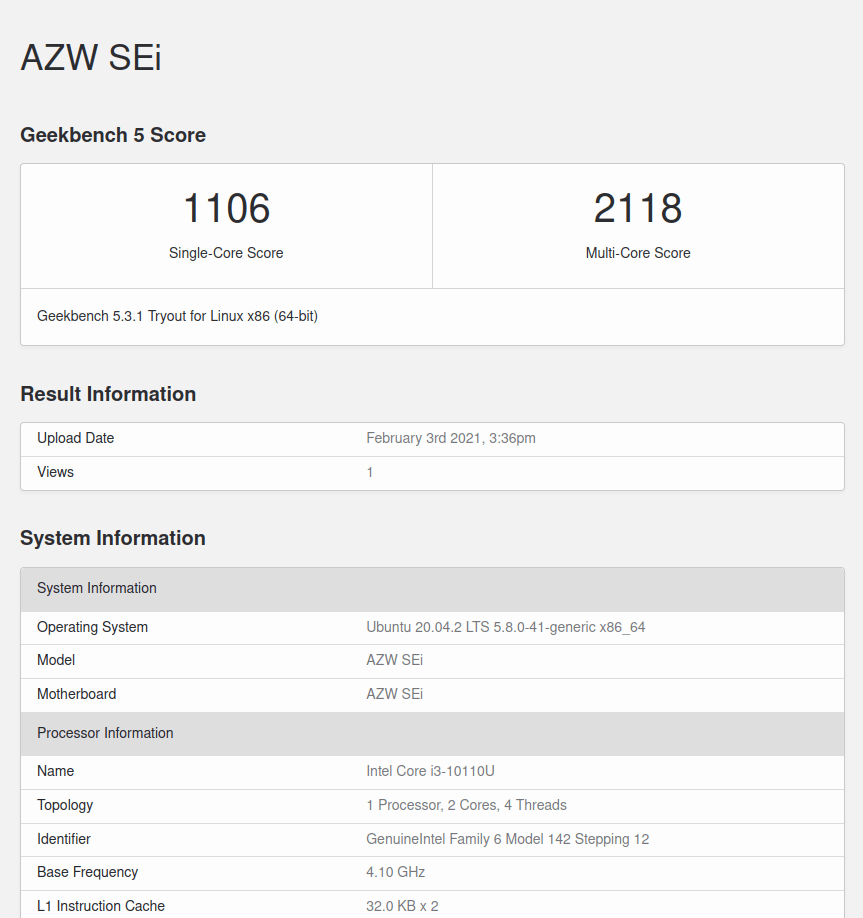
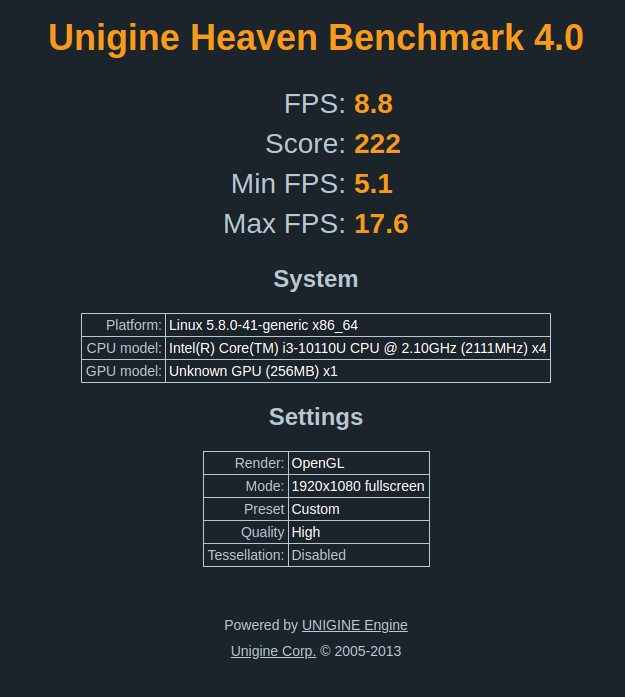
As mentioned I also ran Passmark PerformanceTest Linux: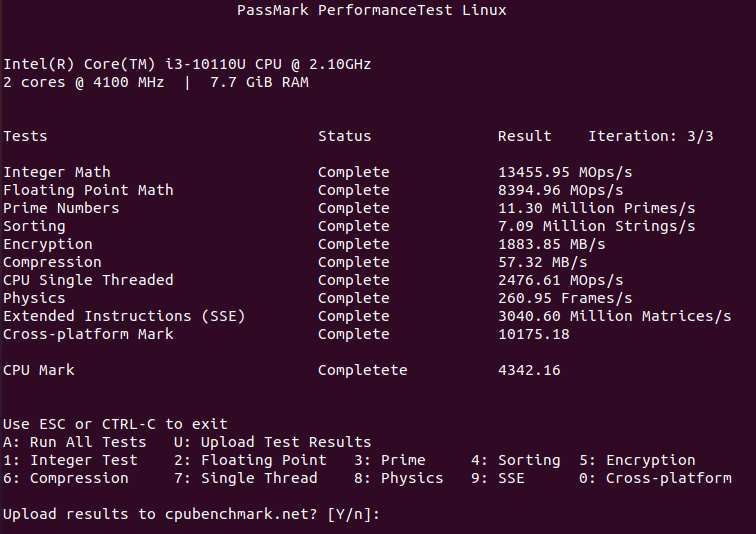
For the same set of Phoronix Test Suite tests the results were:
The complete results together with a comparison against other recent mini PCs are:
again showing that the processor is not really suitable for ‘AAA’ gaming in Ubuntu.
Browsers & Kodi
For real-world testing, I played some videos in Edge, Chrome, and Kodi on Windows and in Firefox, Chrome, and Kodi on Ubuntu. The following tables summarise the tests and results for each:
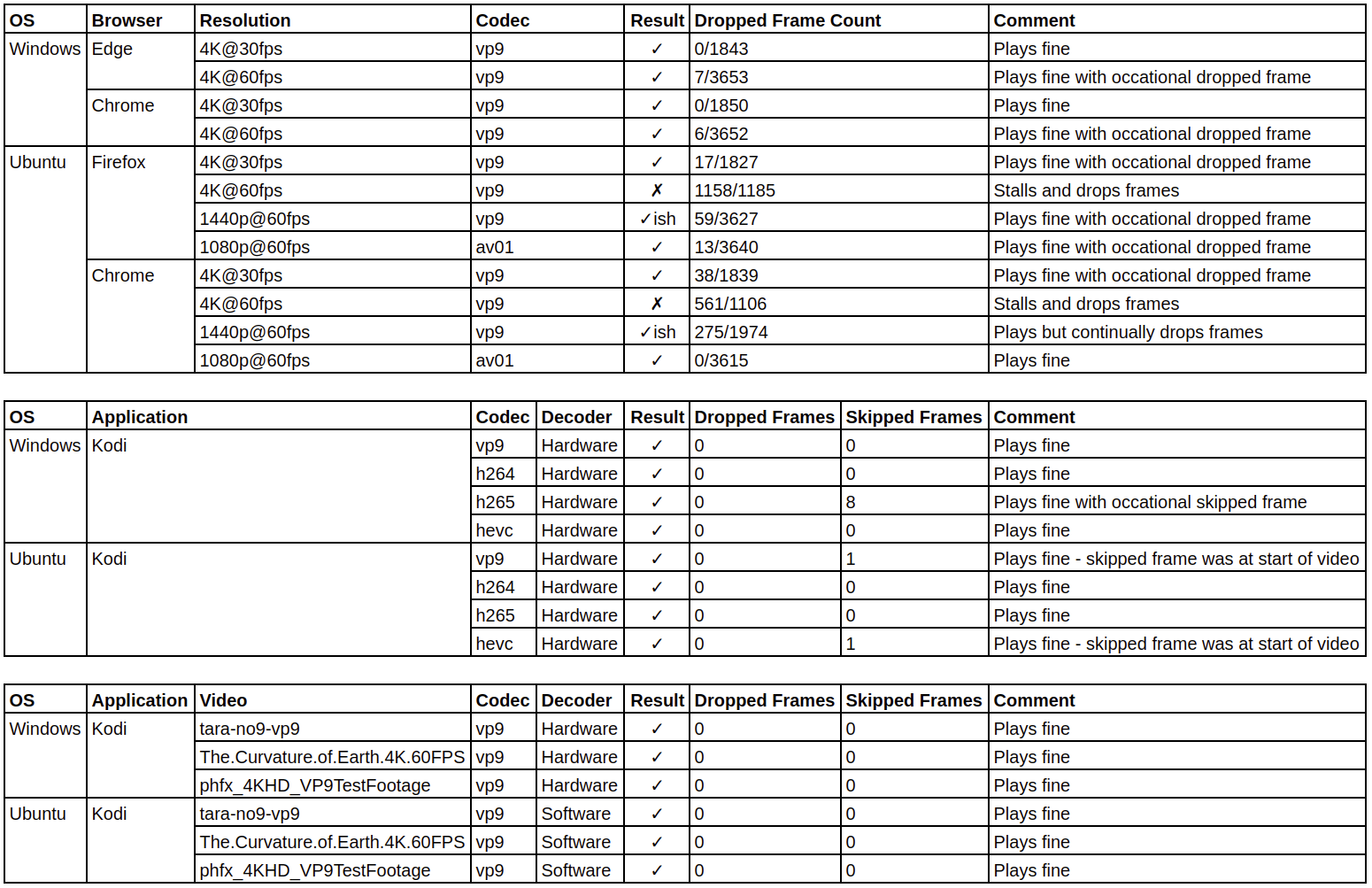
In browser playback because of higher CPU usage the fan ramps up and becomes audible. The fan RPM is higher in Ubuntu resulting in more noise and when the fan initially ramps it also results in dropped frames. As a result browser playback in Windows is considerably better than in Ubuntu.
I also tested playing an 8K video in Kodi on both OS. In Windows 8K 30 FPS played without issue and 8K 60 FPS played fine with just the occasional skipped frame:
However, in Ubuntu whilst both 8K 30 FPS and 60 FPS played they were juddery with constant frame skipping despite both using hardware decoding:
Windows 10 vs Ubuntu 20.04
Whilst a detailed comparison between the two operating systems is beyond the scope of this review, it is worth noting some of the key findings I observed. First looking at the performance tools common between the two systems. Overall Ubuntu performs slightly better in the benchmarks than Windows and this can be visually shown by comparing the same Phoronix Test Suite benchmarks in each OS:
However, as mentioned above Windows played videos much better than Ubuntu.
Thermals
The Beelink SEi mini PC uses active cooling with dual copper heat pipes and a fan to assist with heat dissipation. During benchmarking the maximum temperature I recorded on the top of the device was around 34°C in an ambient room temperature of 24.5°C. Although the device didn’t become hot to touch, the fan does become audible under load.
When the fan was running ‘quietly’ it registered around 37 dBA on my sound level meter next to the device. When playing a video in browsers on Ubuntu the fan quickly ramps up to around 43 dBA and then can get louder reaching up to 50 dBA as it cools the hot CPU:
Running a stress test on Ubuntu saw the CPU temperature rise quickly to 89/87°C and the fan ran continuously at 51 dBA. The test was interrupted after approximately eight minutes given everything appeared hot but stable and the CPU temperature dropped almost immediately back down to 45°C:
The top of the device reached a maximum of 38°C during the stress test and the ambient room temperature was 26.9°C.
Networking
Network connectivity throughput was measured on Ubuntu using ‘iperf’:
The WiFi results are very good especially for the 5 GHz band with speeds nearly the same as gigabit Ethernet.
Power
Power consumption was measured as follows:
- Initially plugged in – 1.0 Watts
- Powered off (shutdown) – 0.7 Watts (Windows) and 0.7 Watts (Ubuntu)
- BIOS* – 9.3 Watts
- GRUB boot menu – 7.7 Watts
- Idle – 6.4 Watts (Windows) and 2.6 Watts (Ubuntu)
- CPU stressed – 36.4W (Windows ‘cinebench’) and 29.7W (Ubuntu ‘stress’)
- 4K 30 FPS Video playback** – 14.6 Watts (Windows Edge) and 34.2 Watts (Ubuntu Chrome)
*BIOS (see below)
**The power figures fluctuate notably due to the fan so the value is the average of the median high and median low power readings.
BIOS
The BIOS is one of the most unrestricted I’ve seen and the following video which provides a brief overview is well worth watching to see the settings many BIOS hide:
One setting of interest is the ‘Boot performance mode’ which is set at ‘Max Non-Turbo Performance’ by default:
It determines the CPU performance whilst in the BIOS and gets overridden once the OS boots. It is not worth changing and that probaby goes for all of the settings unless you specifically know what you are doing.
Final Observations
At first glance, the i3-10110U based Beelink SEi mini PC looks to be similar to the ‘NUC 10 Performance’ but without the Thunderbolt port and having lower USB specs (5Gbps rather than 10 Gbps). But by including a Windows Pro license and offering fully loaded configurations with RAM and storage the SEi is trying to be a price-conscious alternative.
Compared to the previous generation of Gemini Lake mini PCs this is a more powerful device with both improved CPU and GPU performance. This does come at a slight cost as the fan is quite noisy when the processor is under load. It is unfortunate that ‘Power Limit’ throttling can occur seemingly randomly and it is not ideal having to check and reboot if affected. However, the inclusion of WiFi 6 and configurable storage options add to the improvements presented by the SEi.
| Highlights | Limitations |
|---|---|
| WiFi 6 | Audible fans |
| Possible ‘Power Limit’ throttling |
I’d like to thank Beelink for providing the SEi for review. It currently retails at around $489 on Amazon for a 16GB RAM and 512GB M.2 drive configuration.

Ian is interested in mini PCs and helps with reviews of mini PCs running Windows, Ubuntu and other Linux operating systems. You can follow him on Facebook or Twitter.
Support CNX Software! Donate via cryptocurrencies, become a Patron on Patreon, or purchase goods on Amazon or Aliexpress


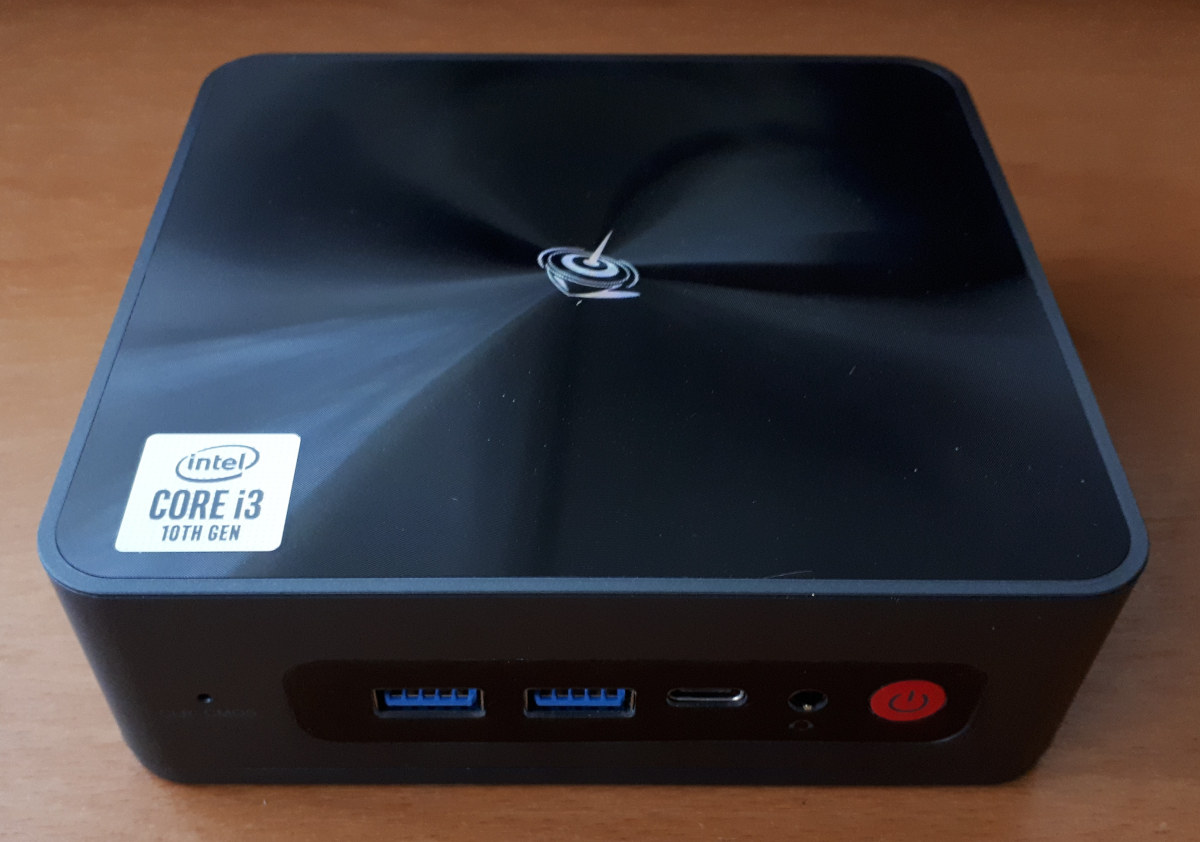
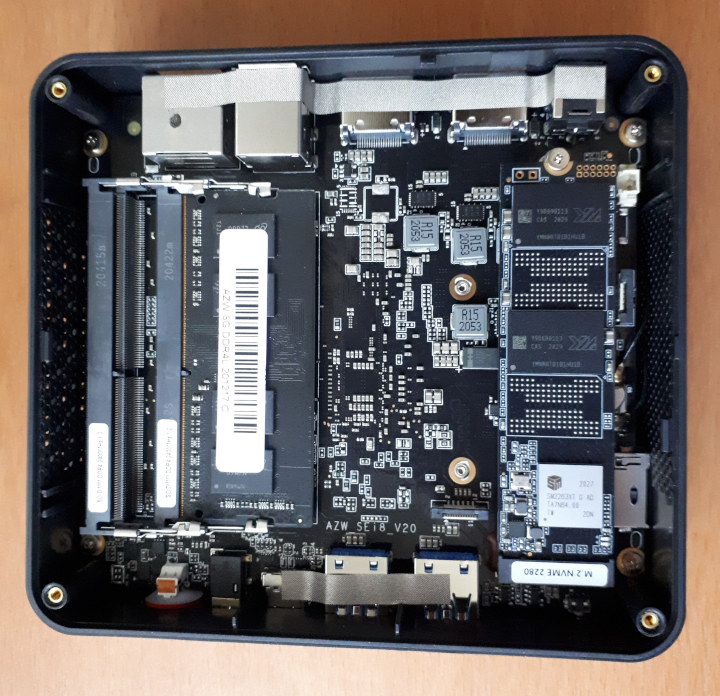
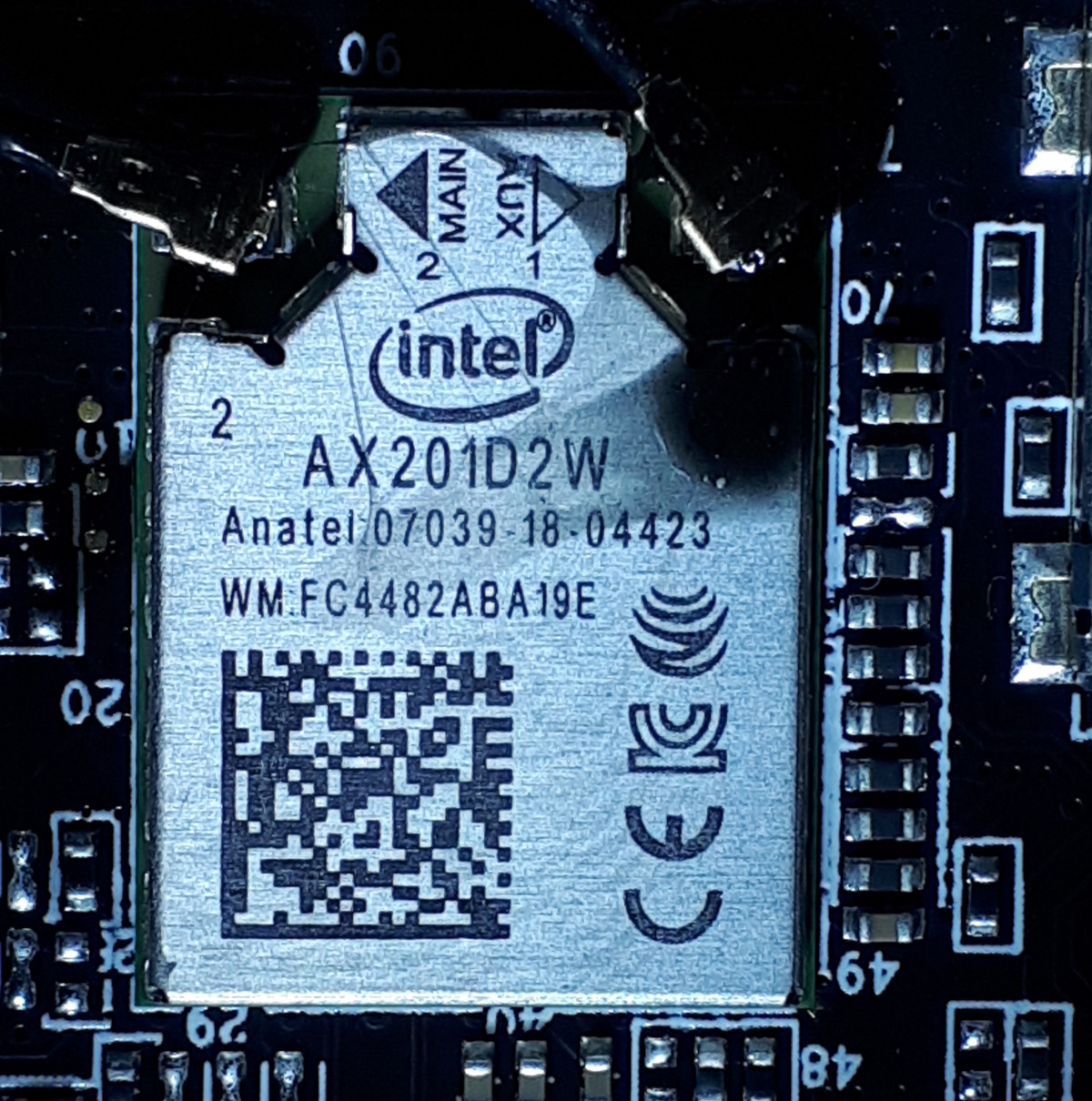
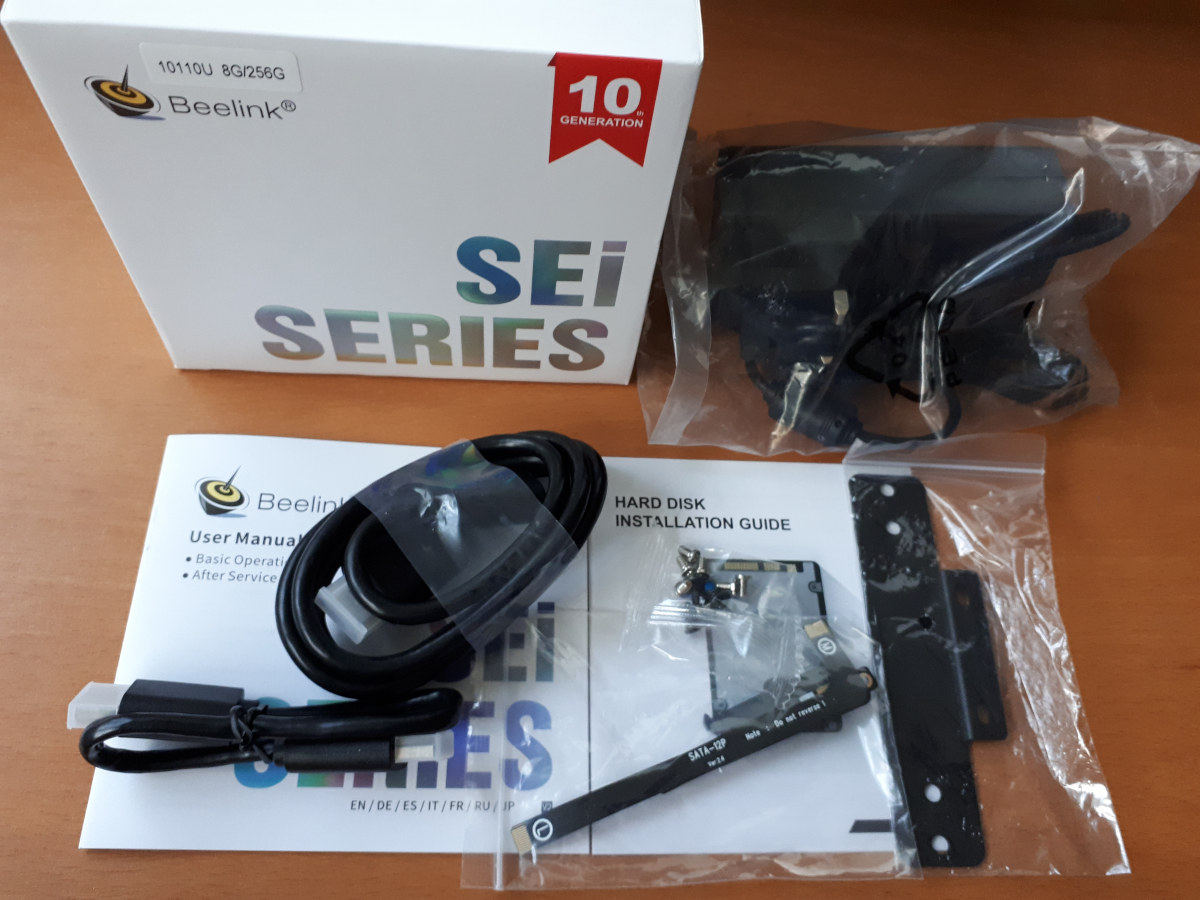


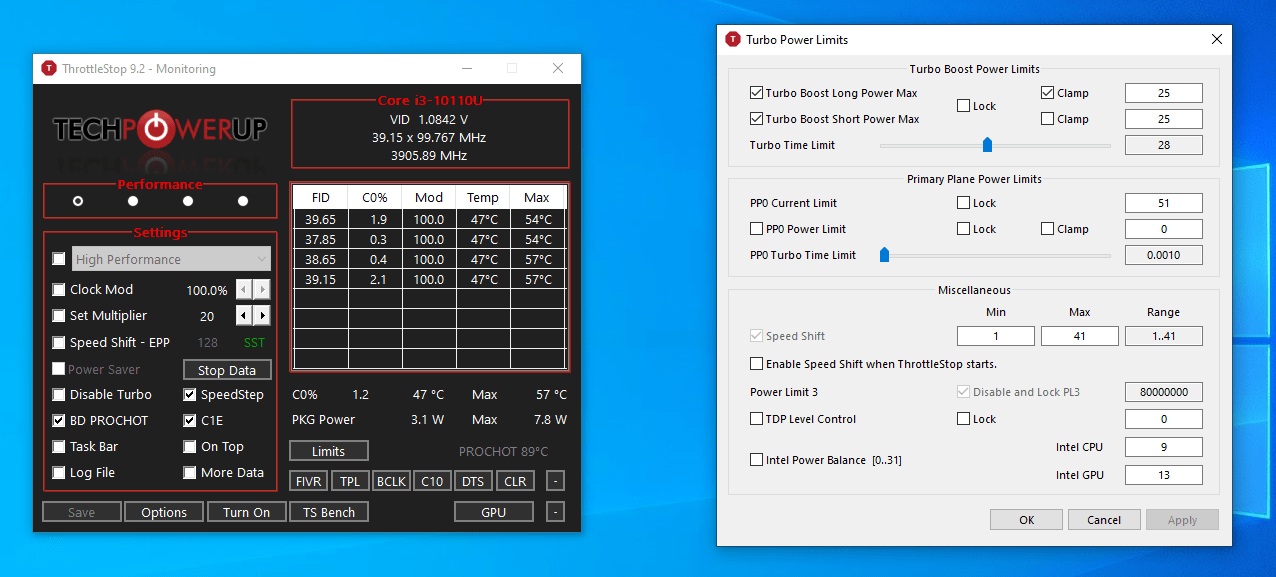

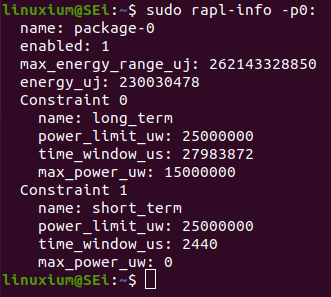
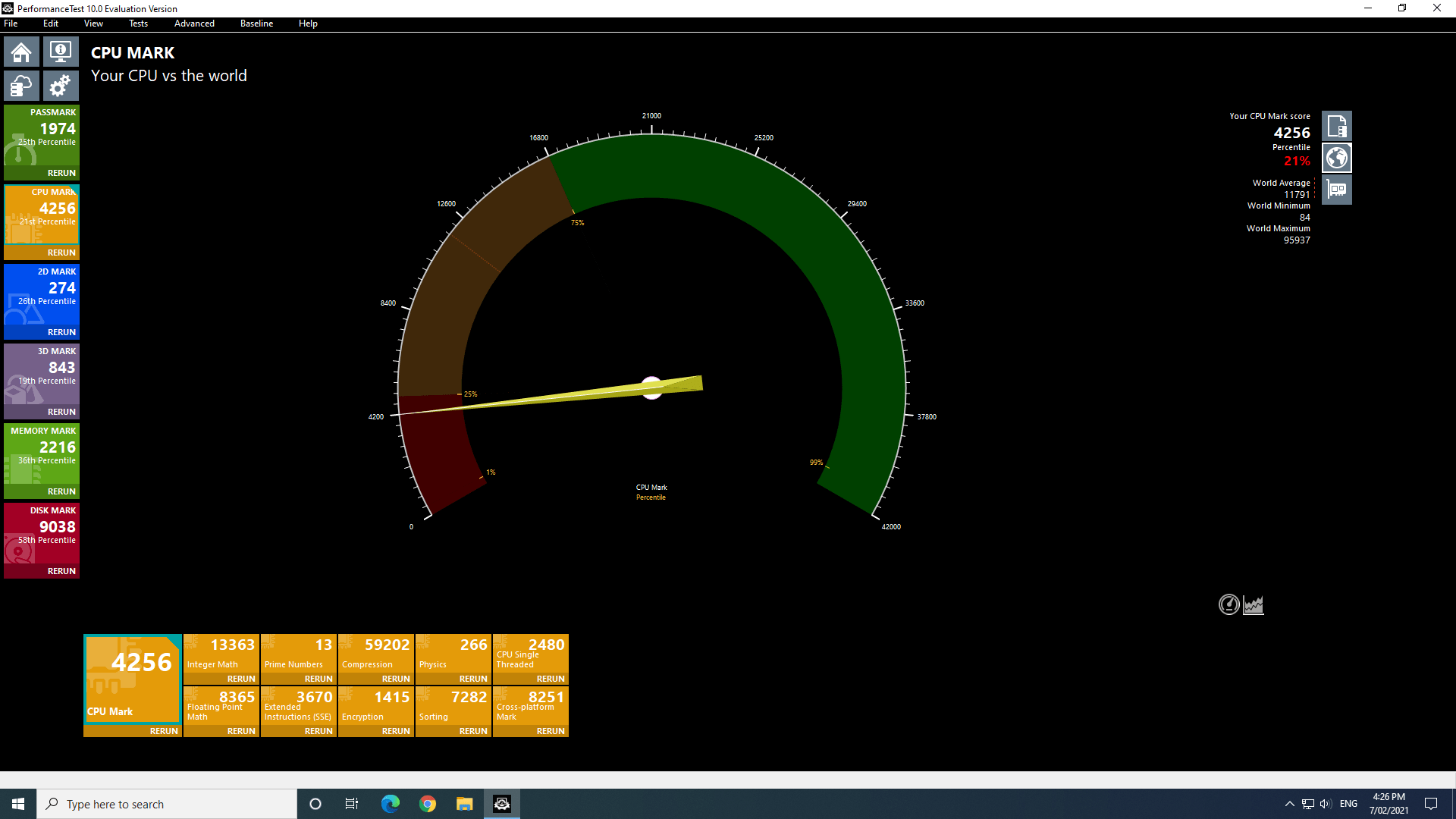
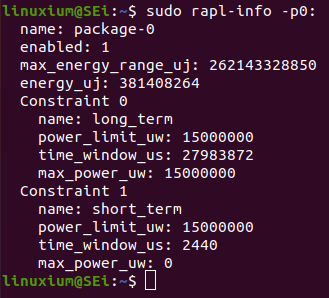
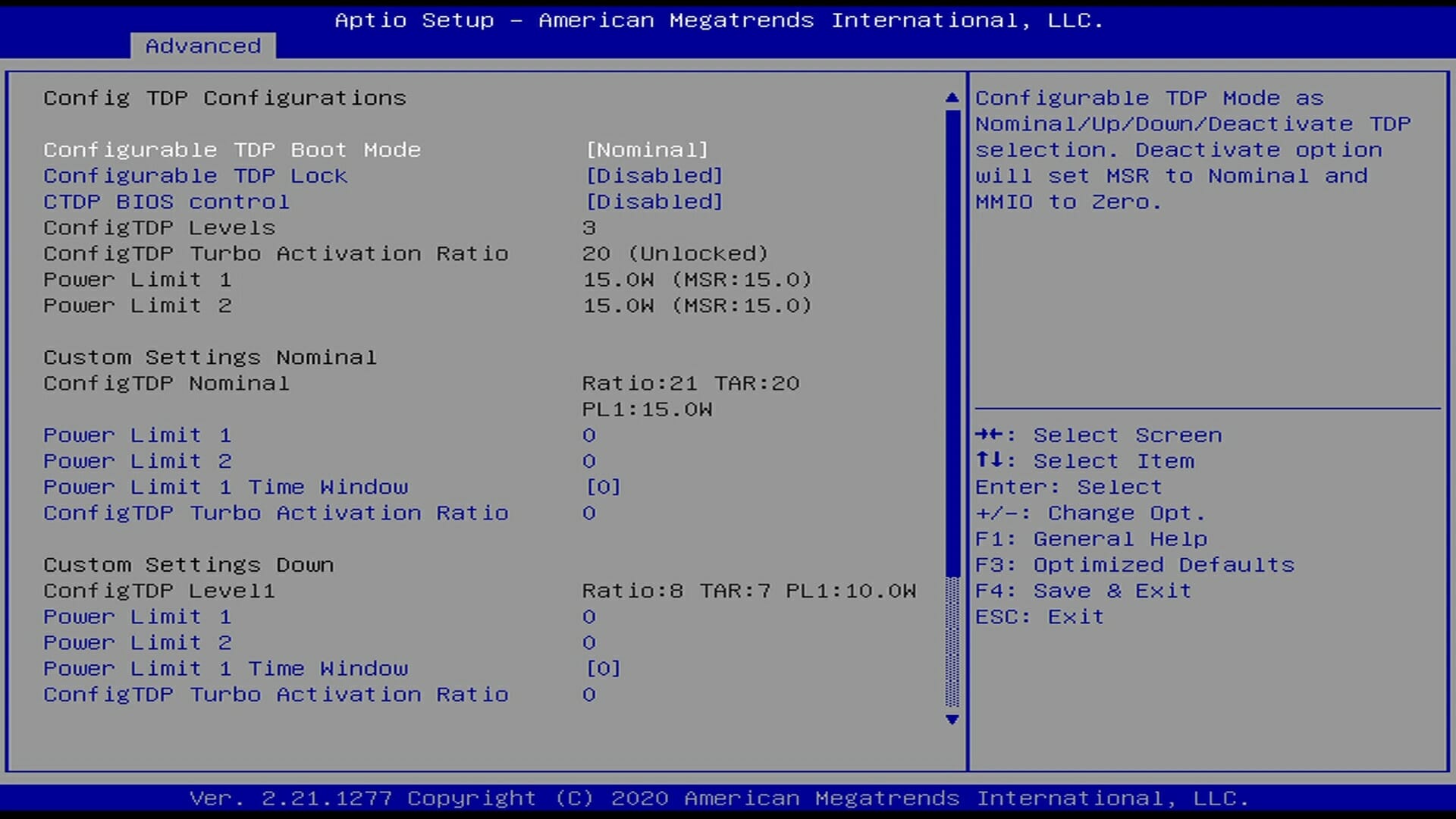
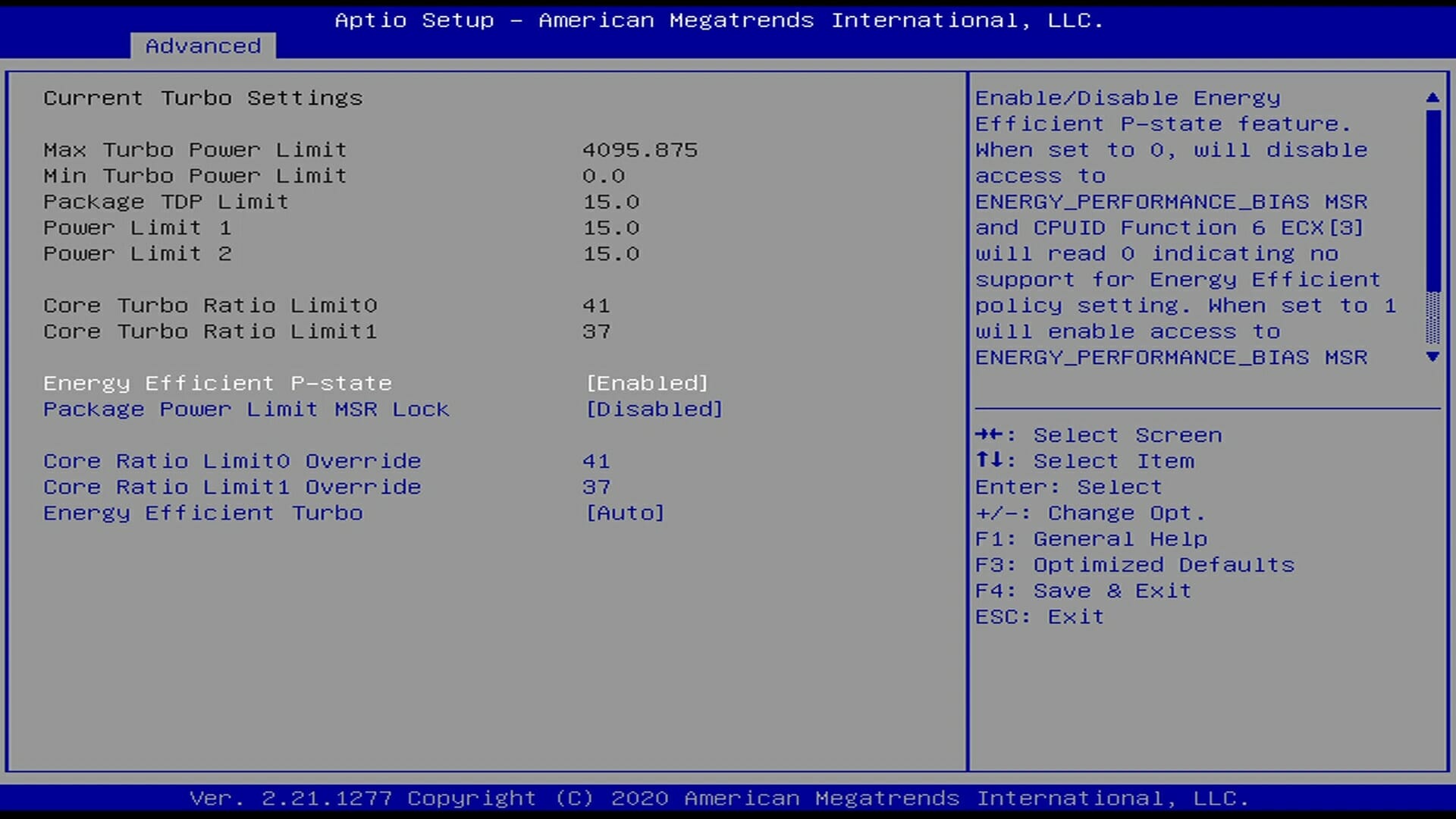
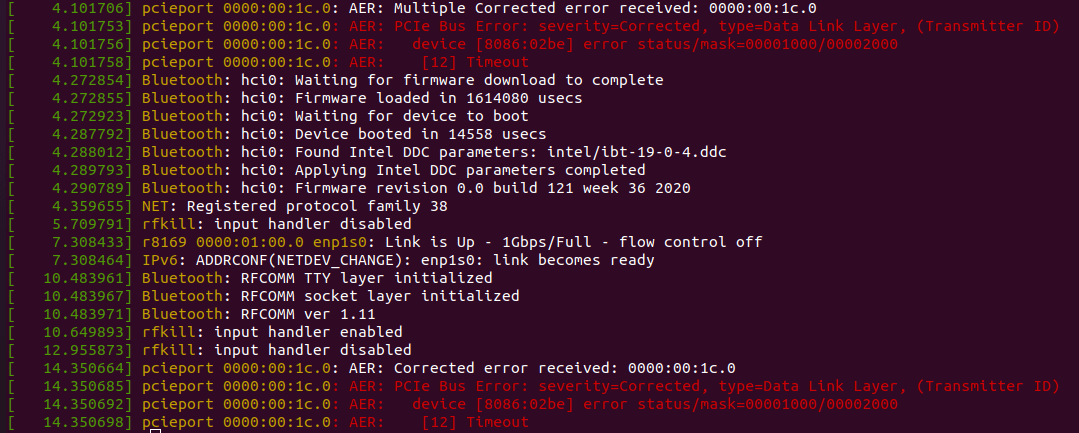
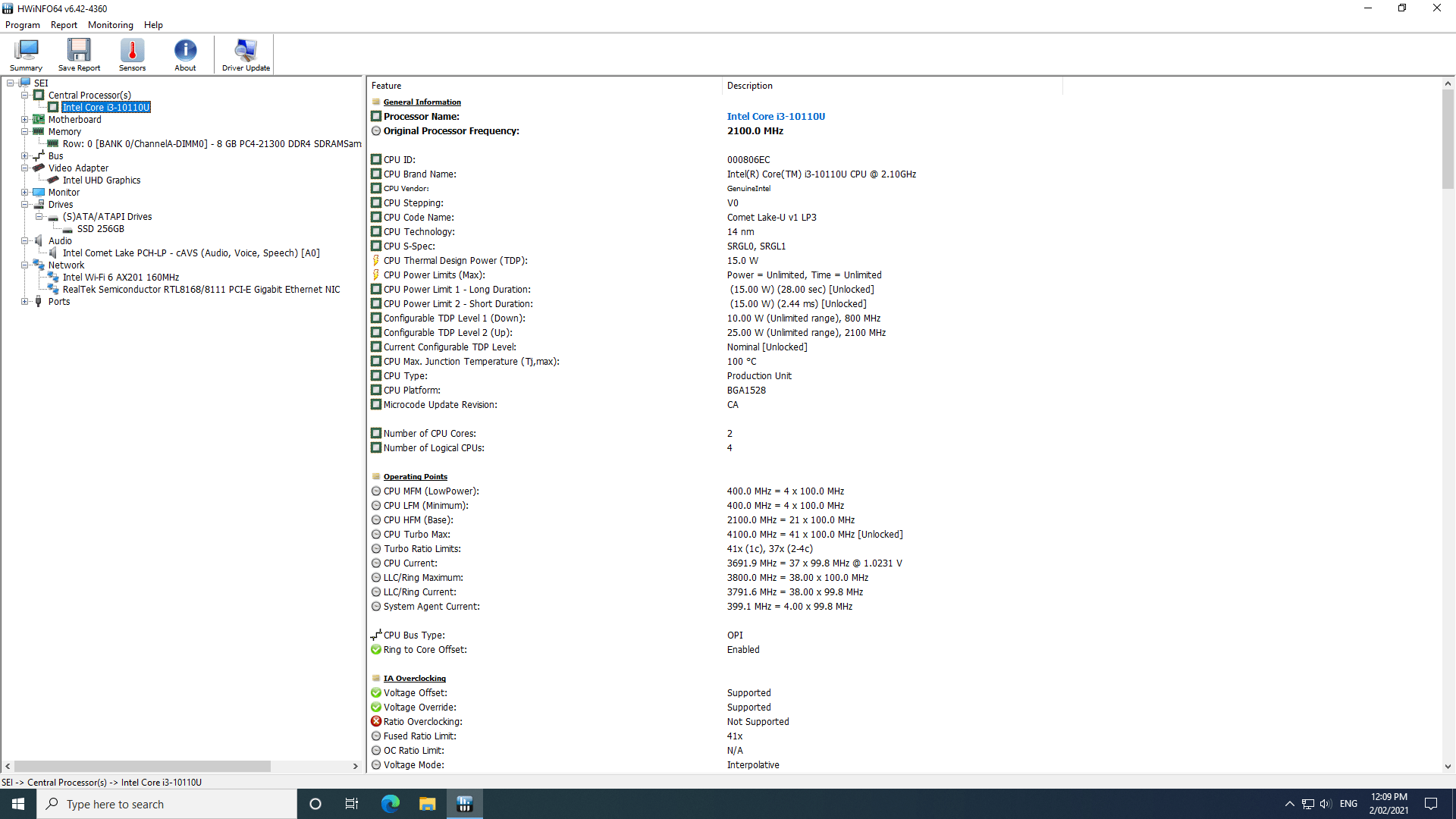
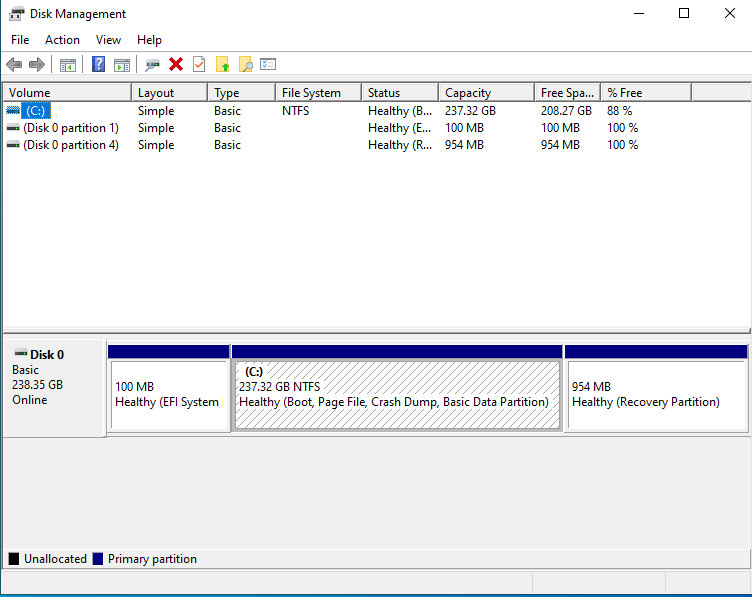
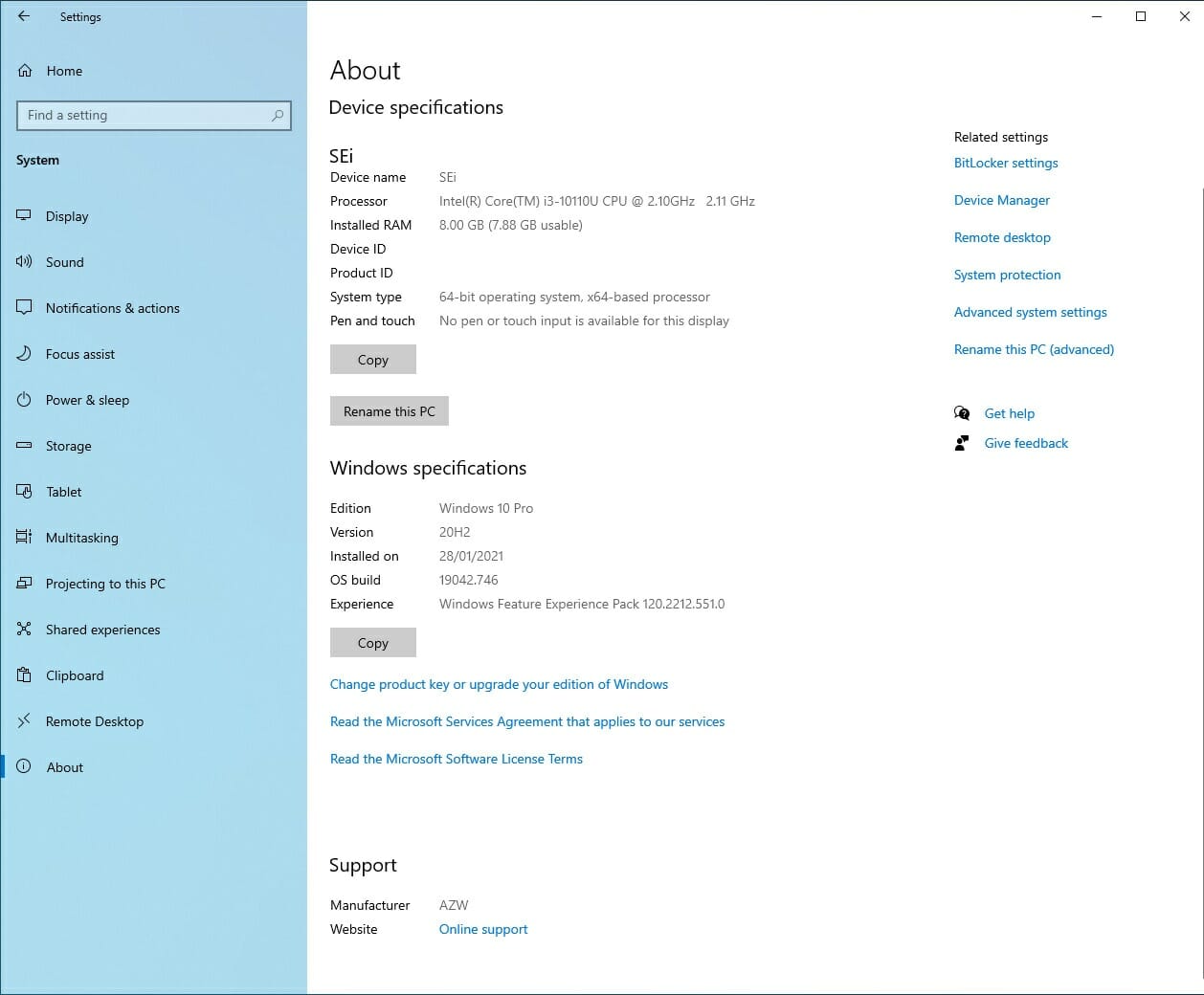
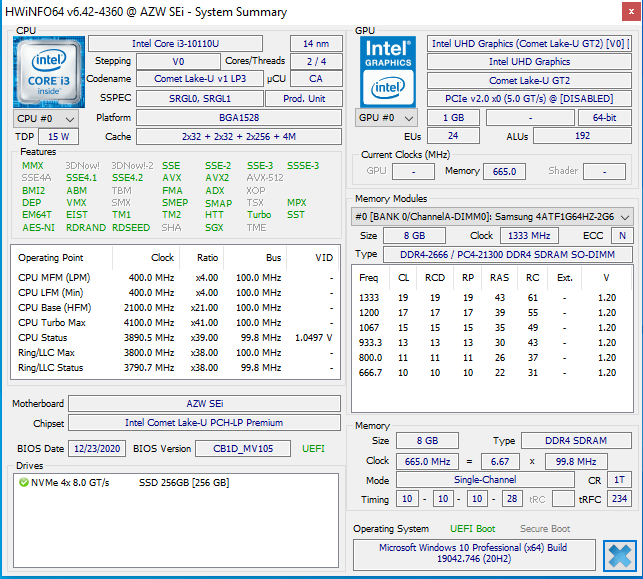
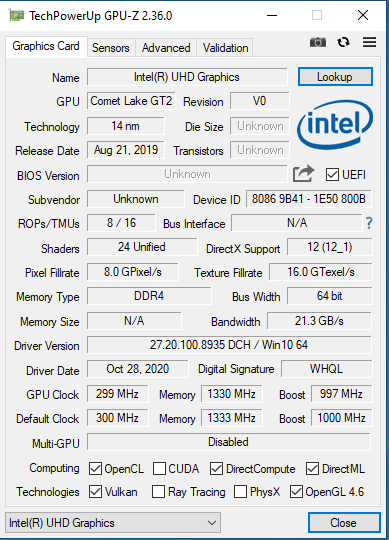
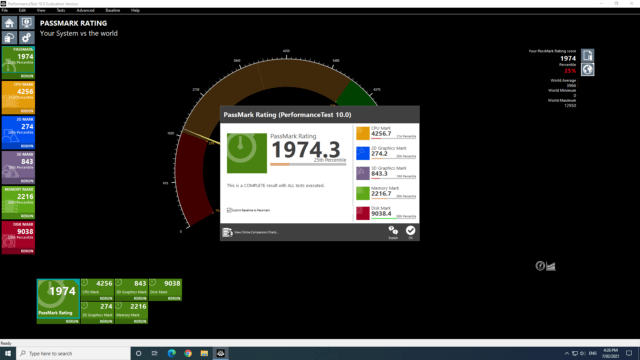
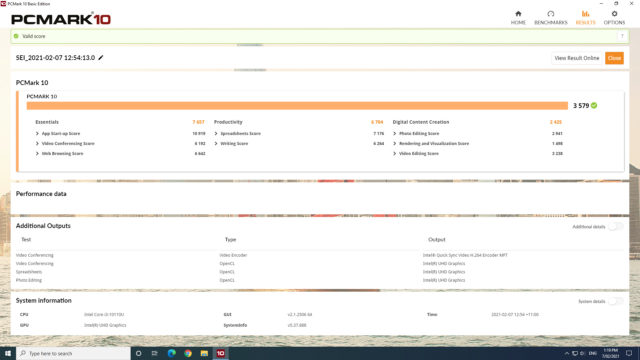
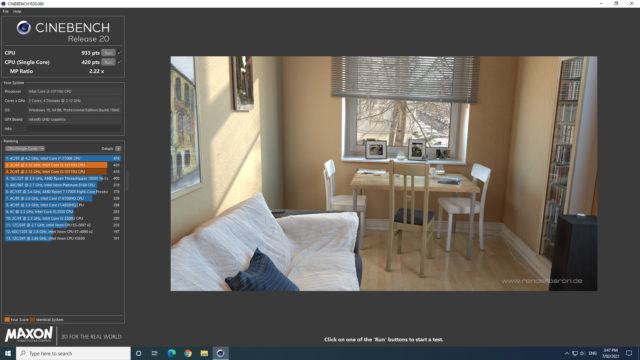
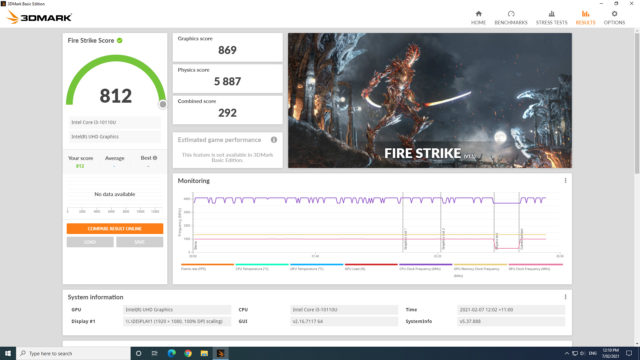
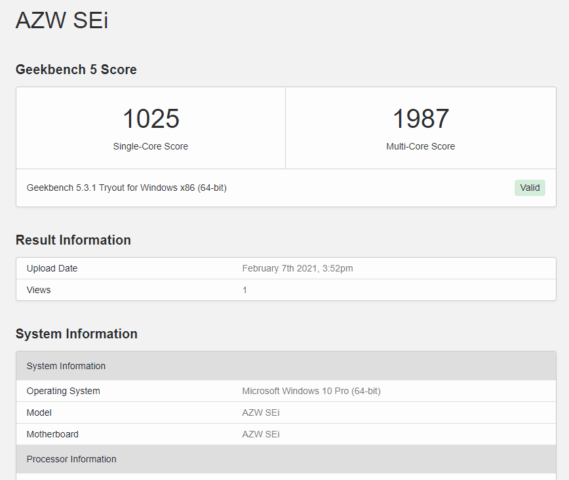
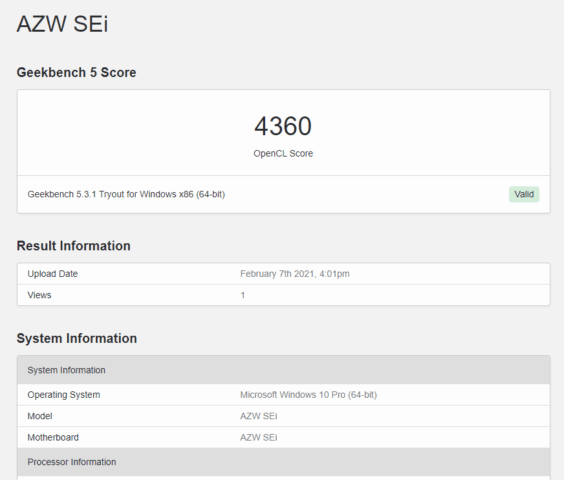
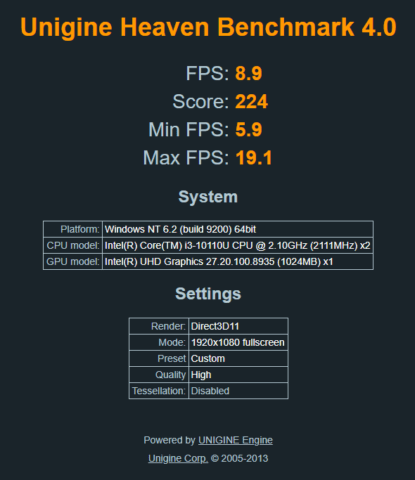
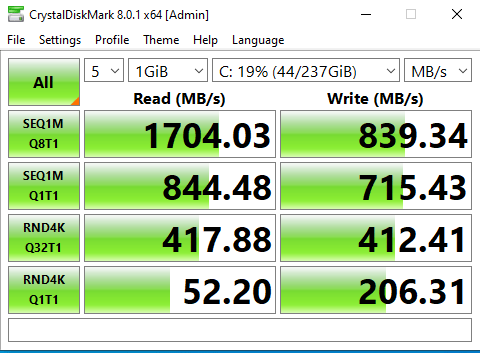
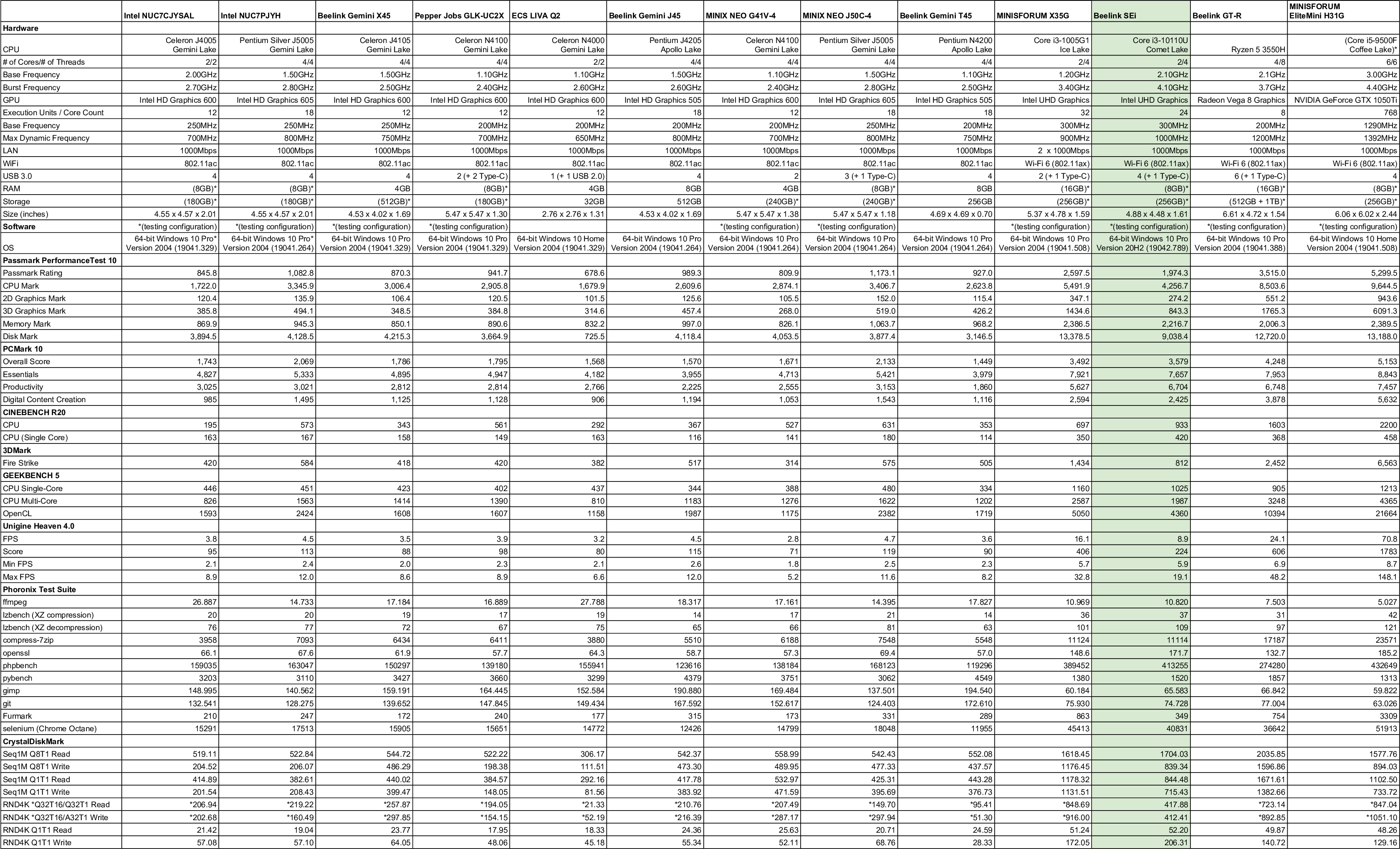
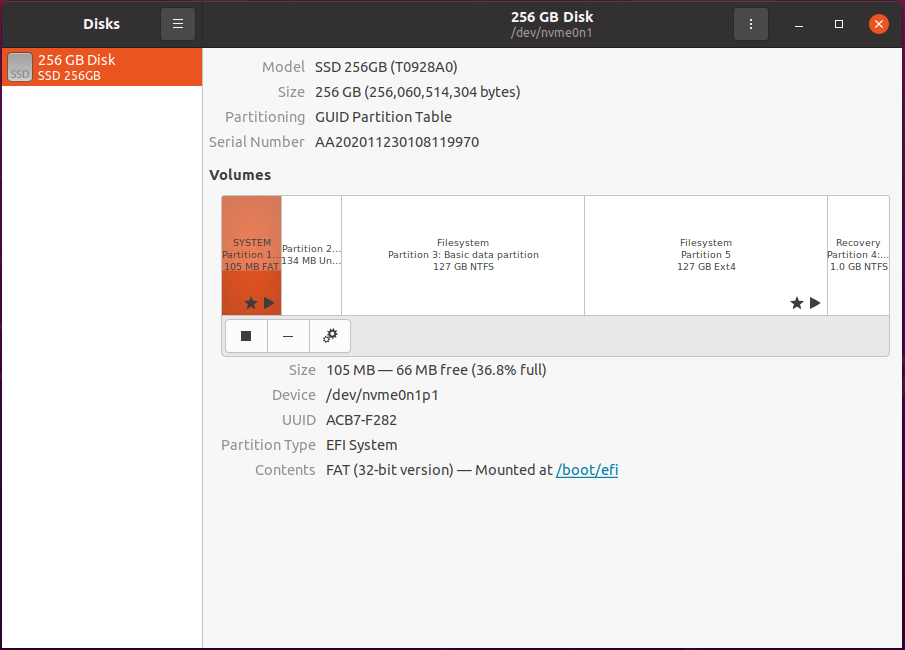
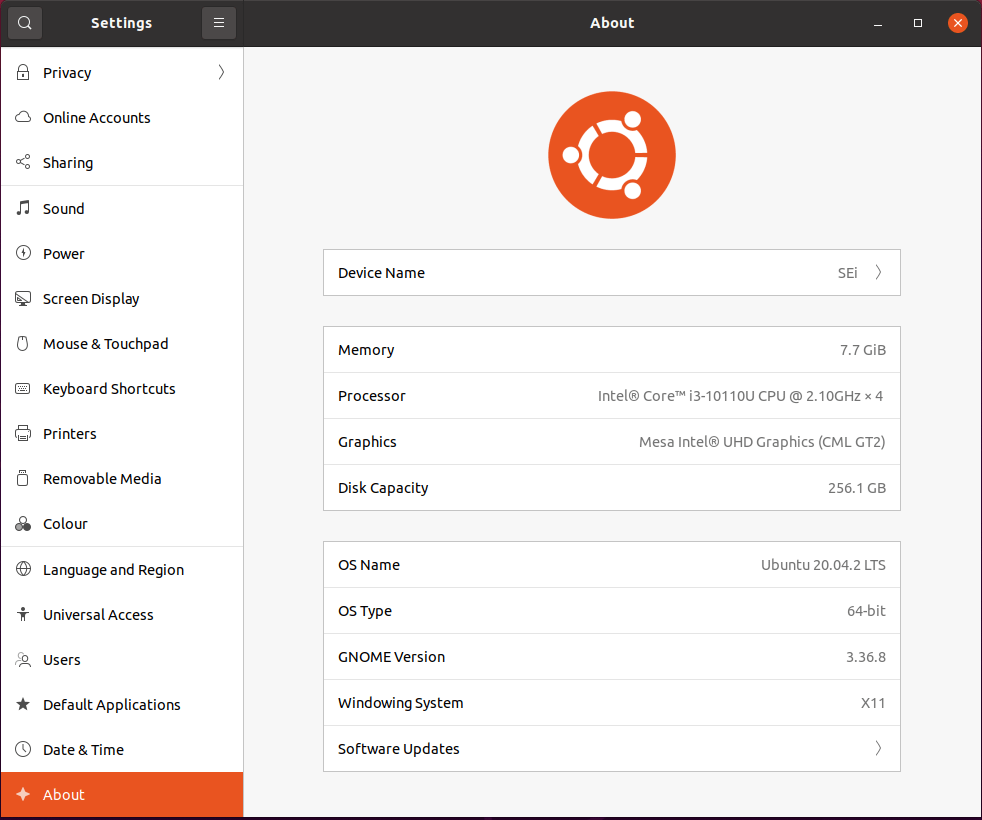
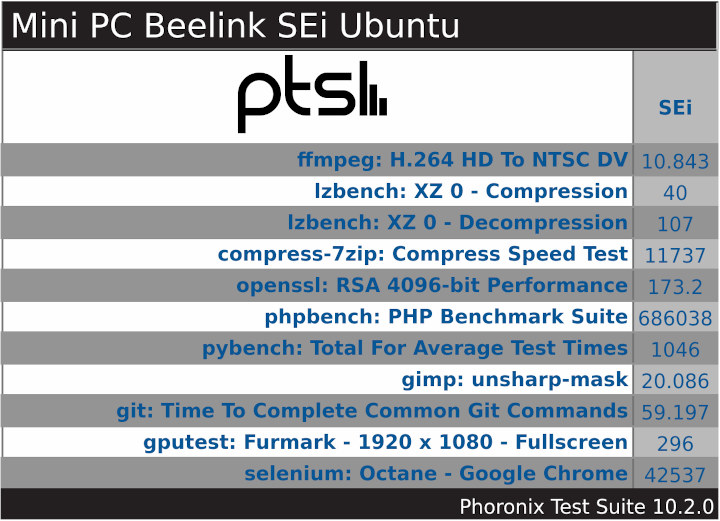
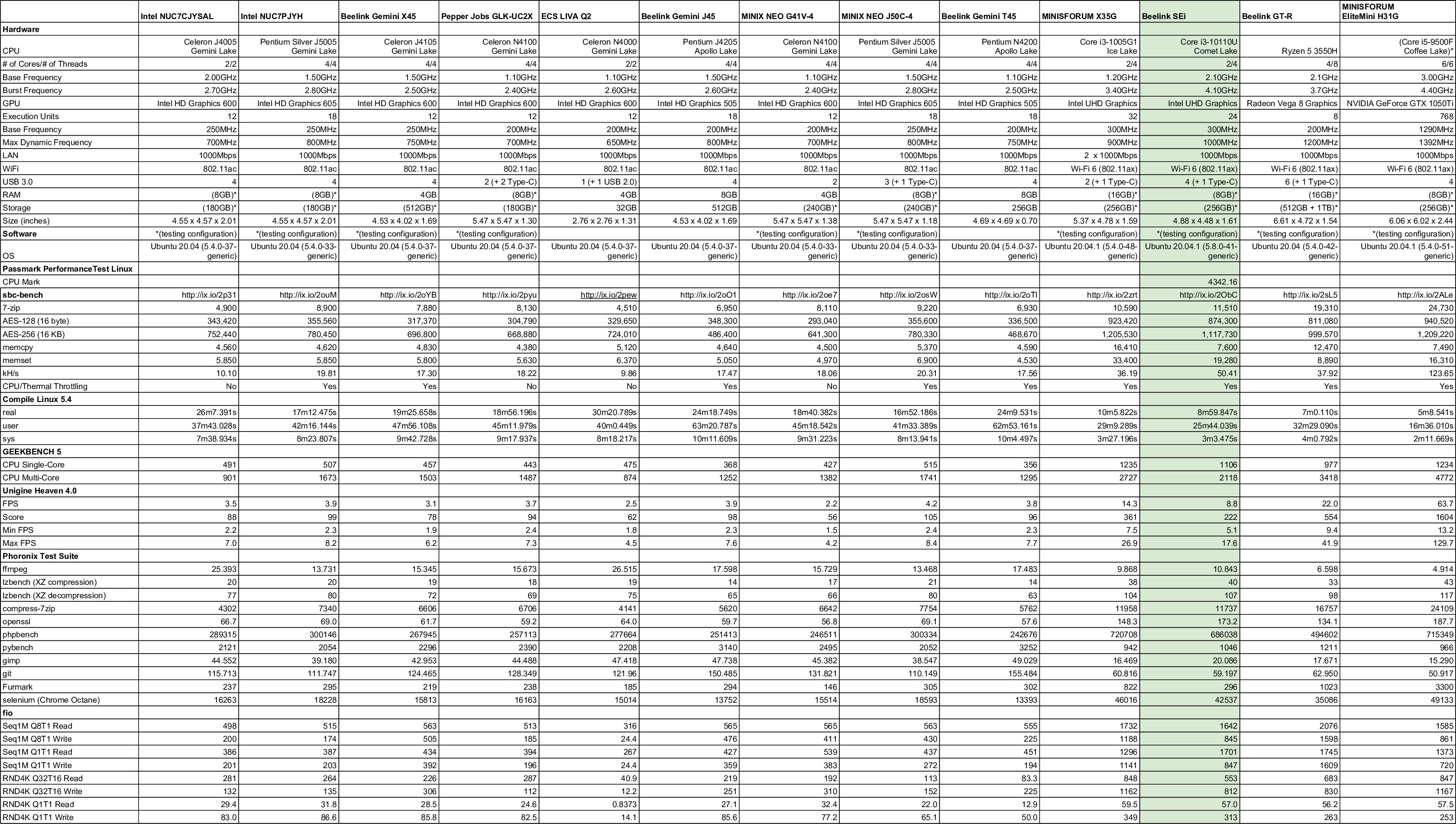
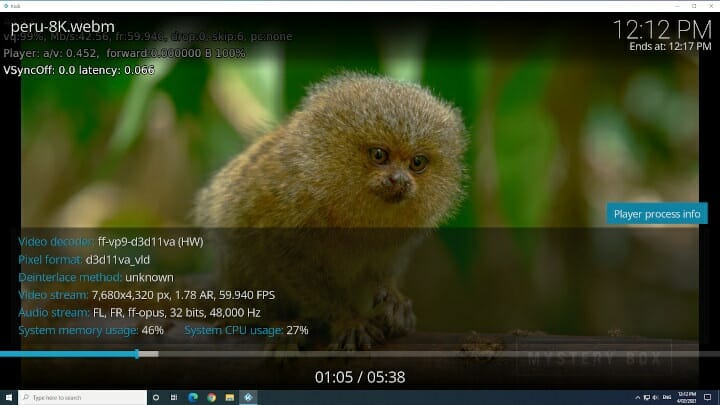
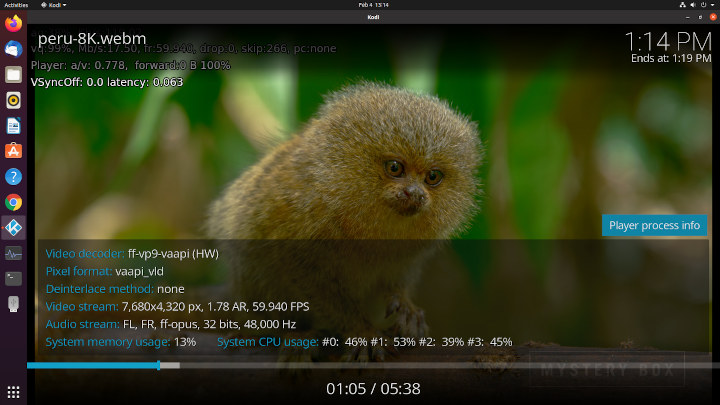
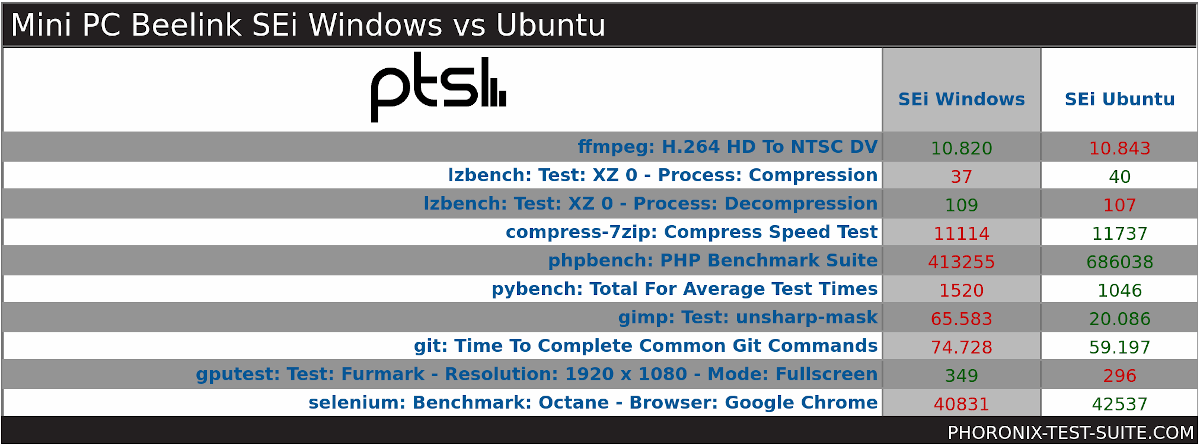
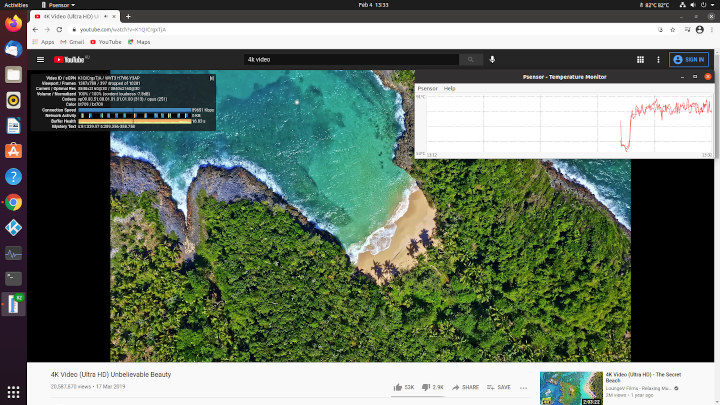
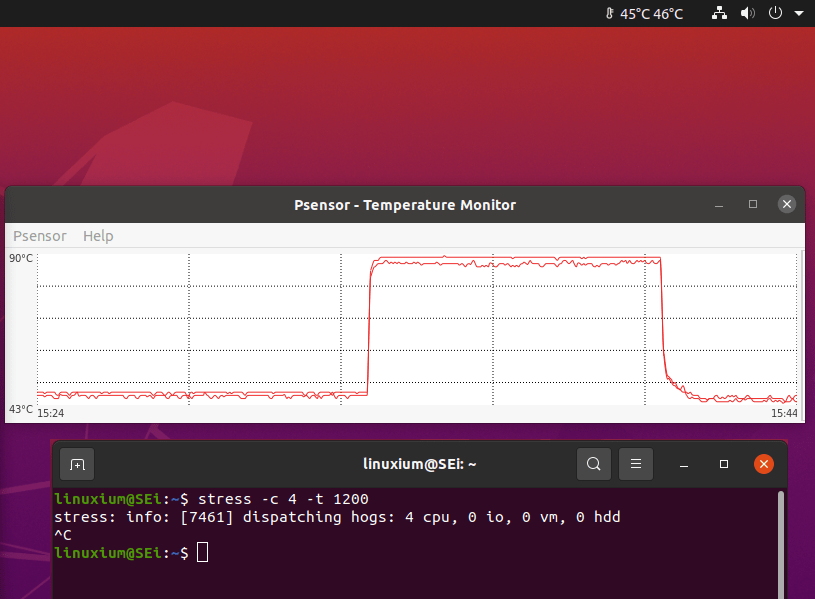


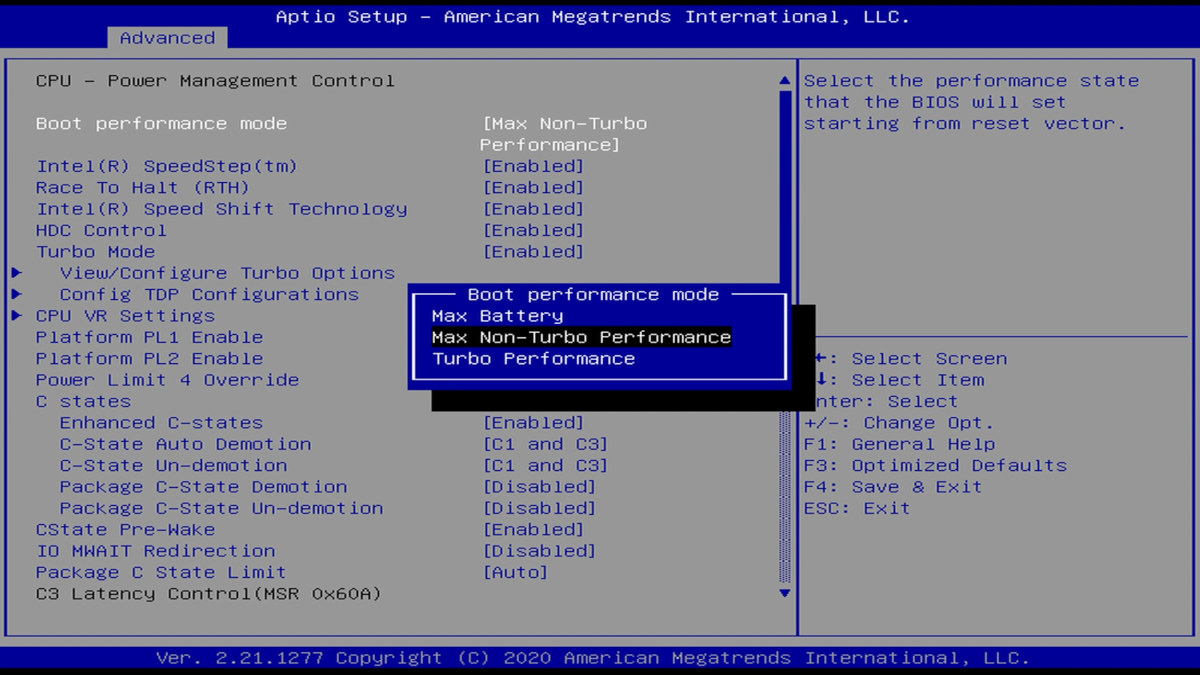



The 2,5Watt @IDLE Ubuntu sounds great, is this with DPMS-off active?
It was with DPMS-off inactive as ‘xset’ reports ‘DPMS is Enabled’ however the settings for DPMS are ‘ Standby: 0 Suspend: 0 Off: 0’ and according to the ‘man’ page ‘A value of zero disables a particular mode’.
Clearly one of the most thorough reviews of miniPC on the net anyhow !!! Excellent stuff
I cannot understand people’s fascination with Beelink products.
For one reason only I shy away from their products (in the past I bought many) : no support for ‘old’ products. They tell there are plans to add support functions but no pudding.
Even registration fails
hello I was hoping you could point me to a compatible fan replacement for the i3 -10110u sei model.
Thanks